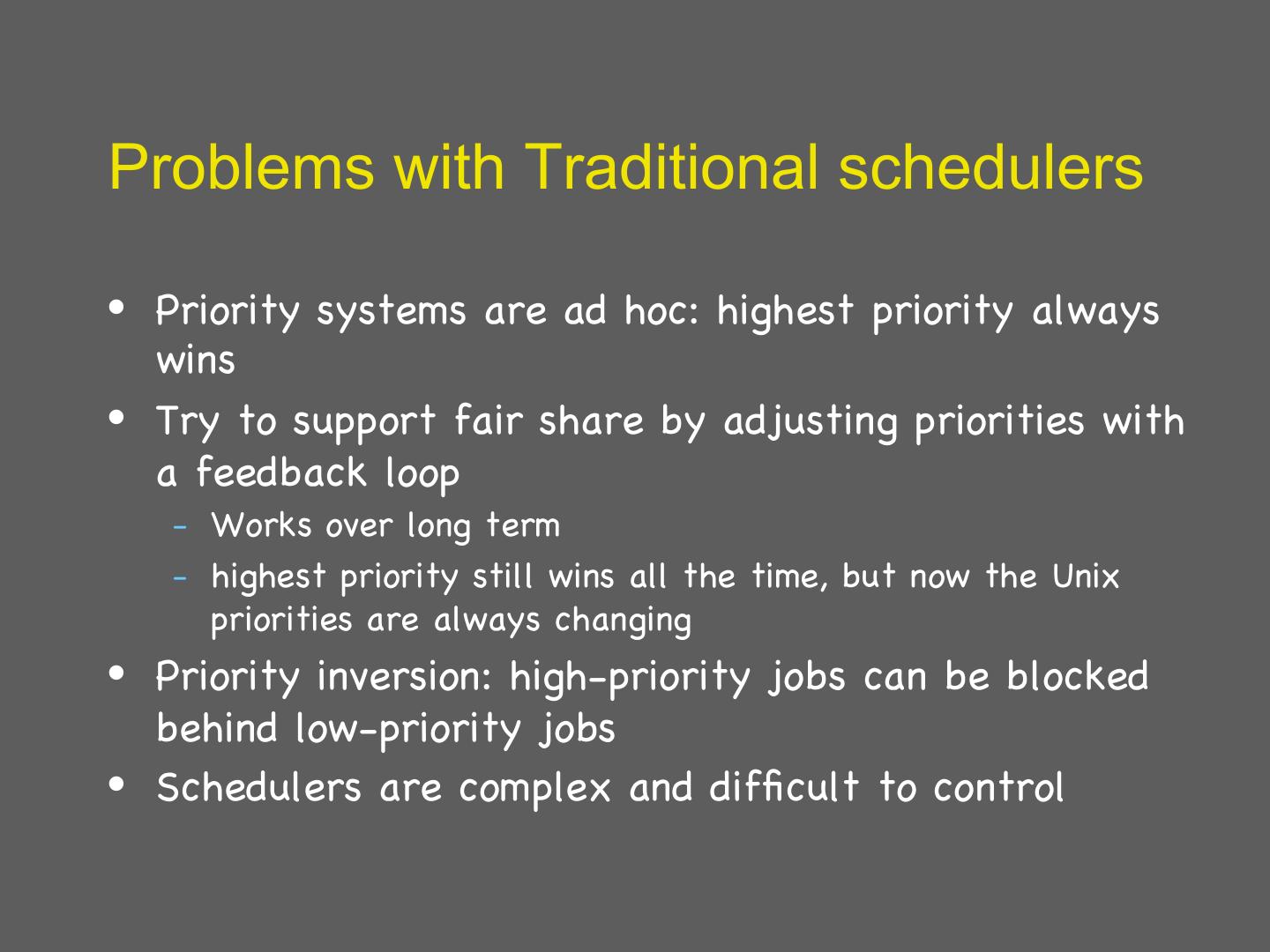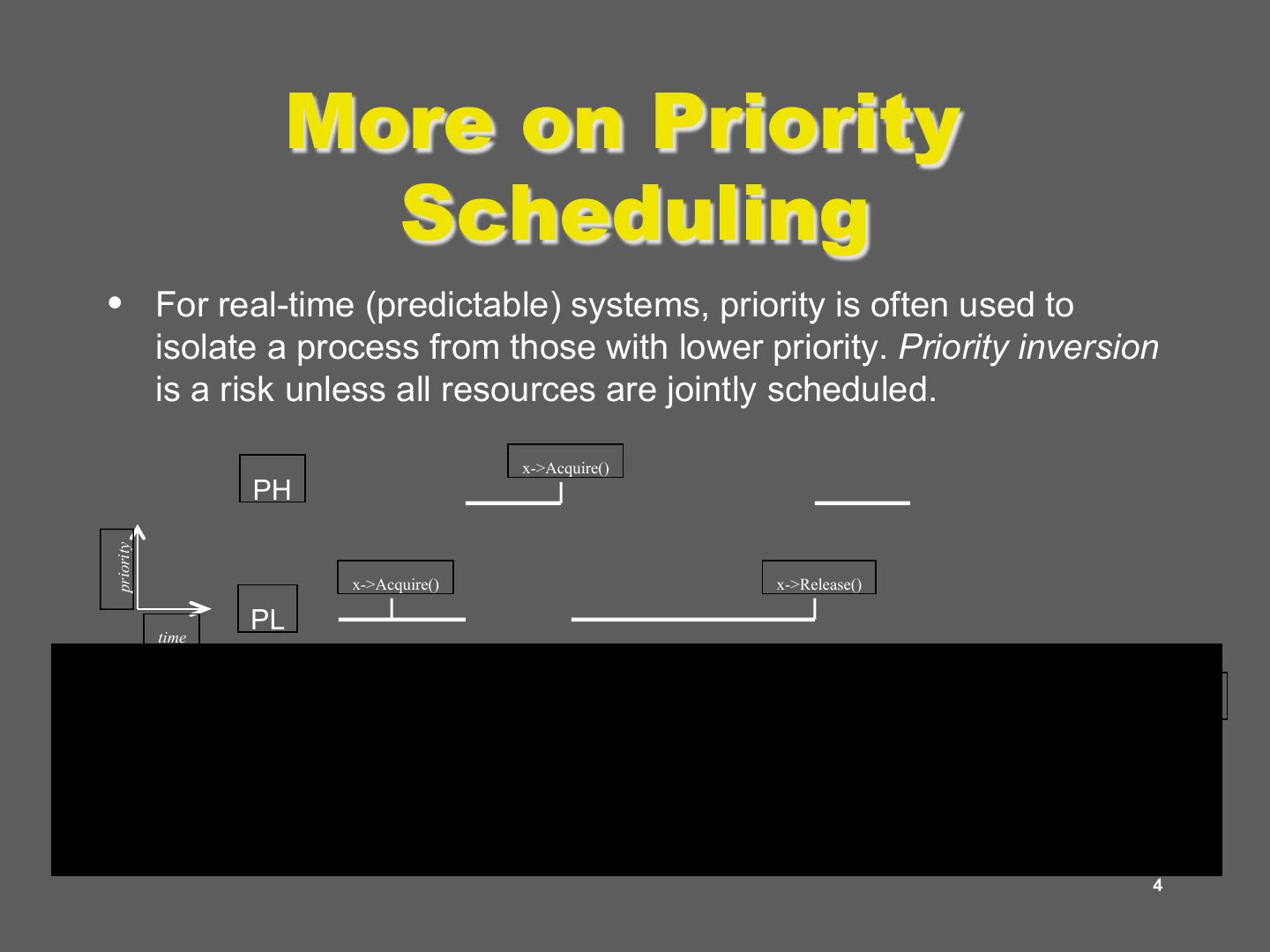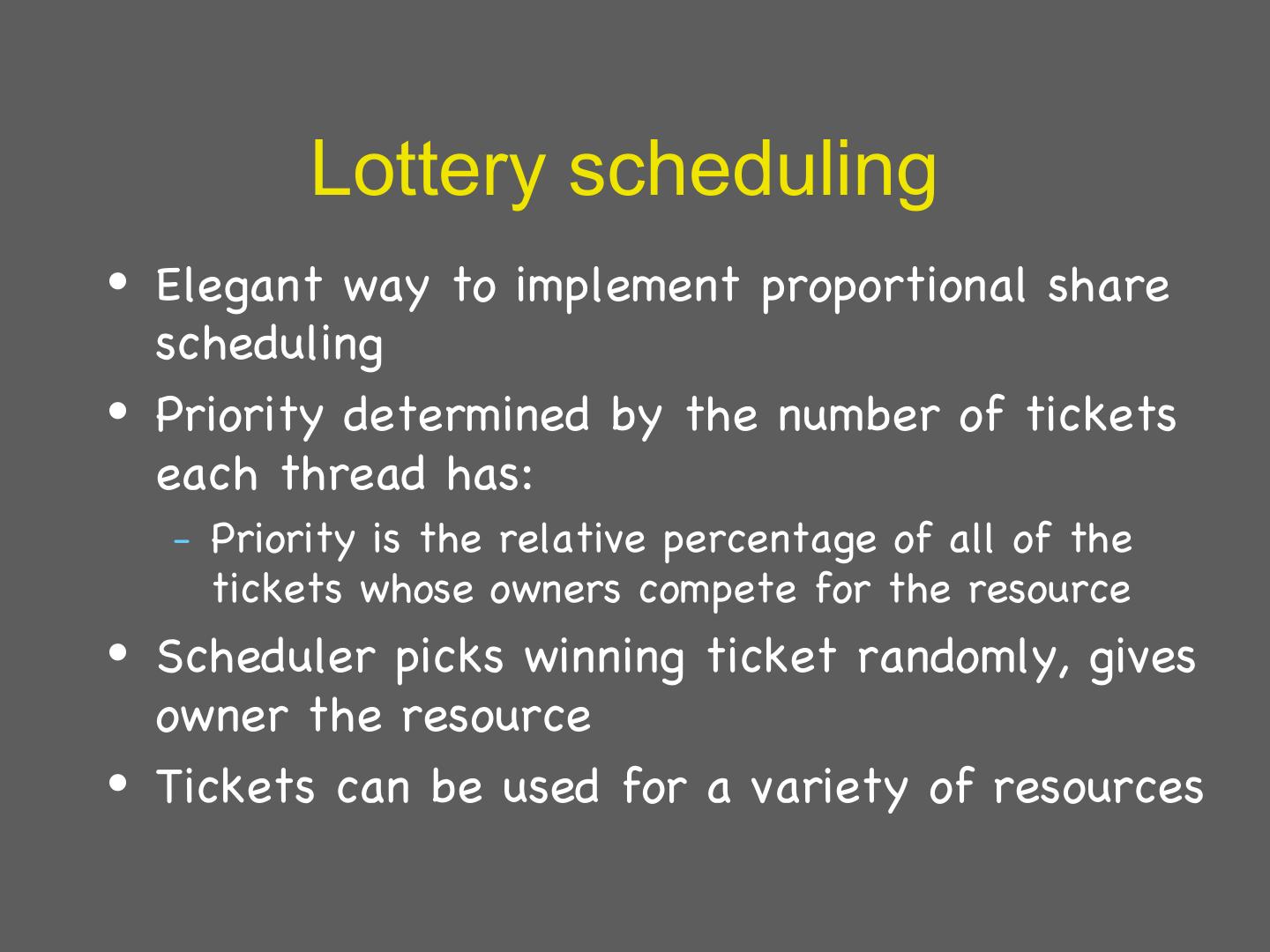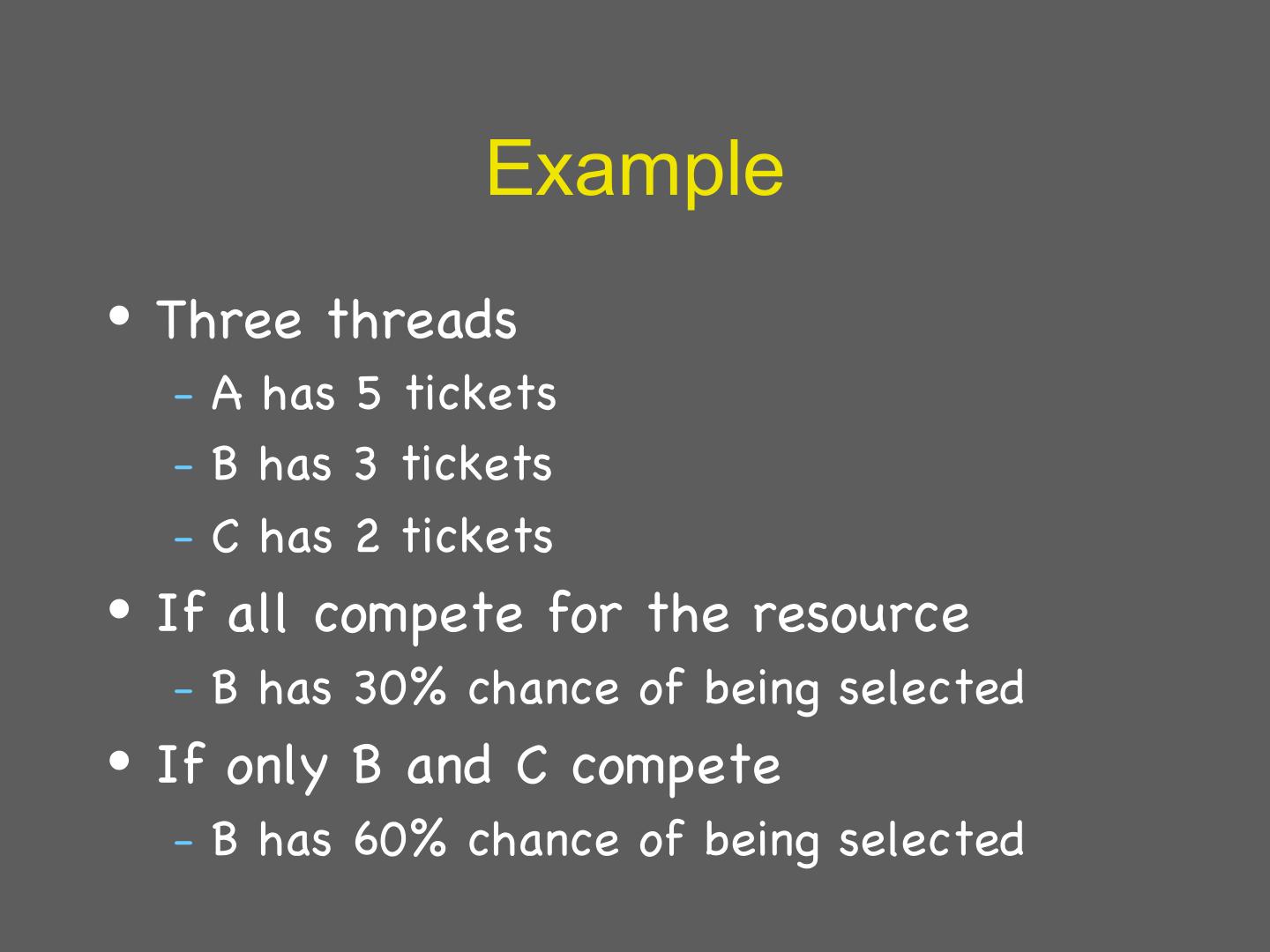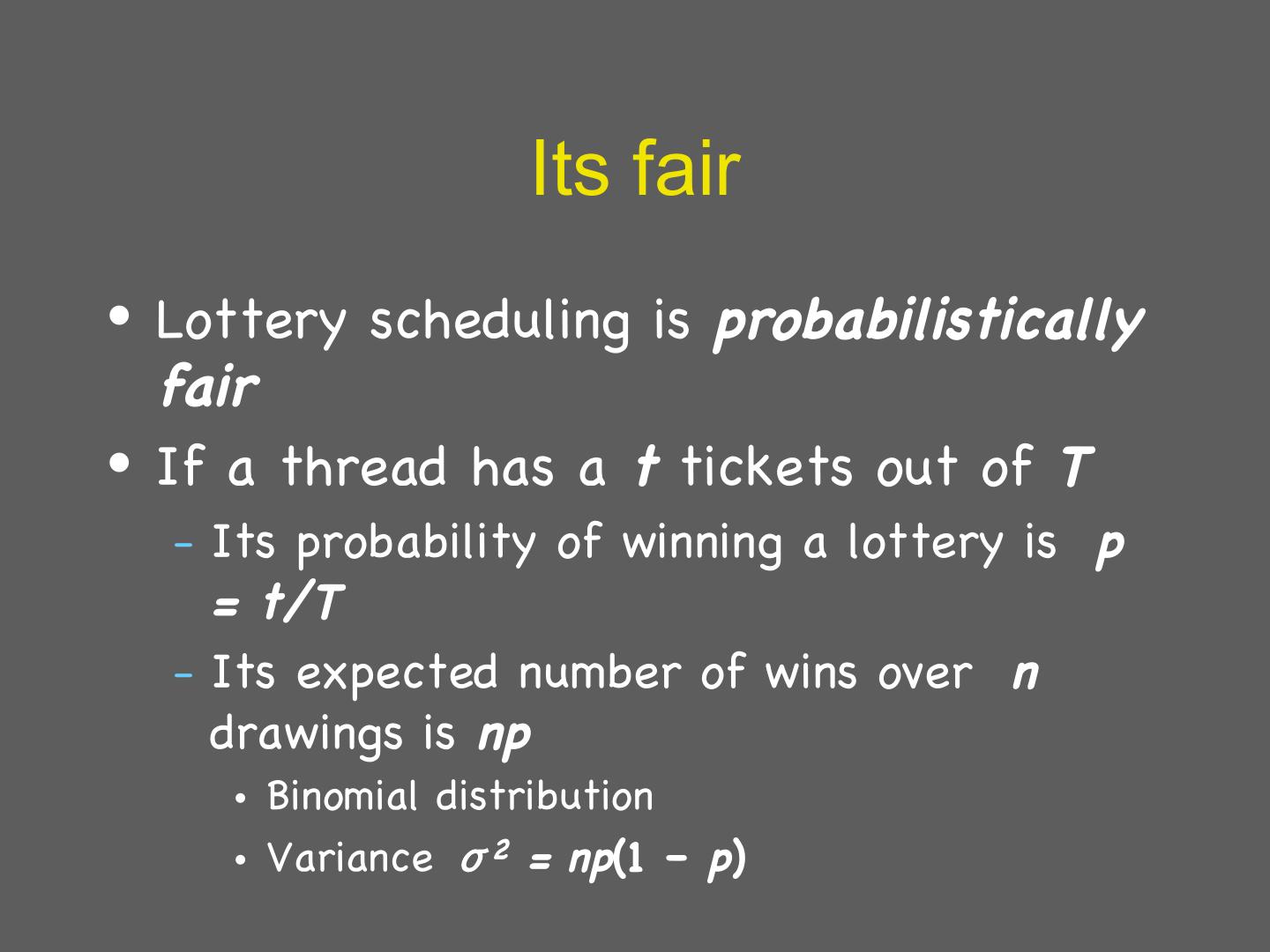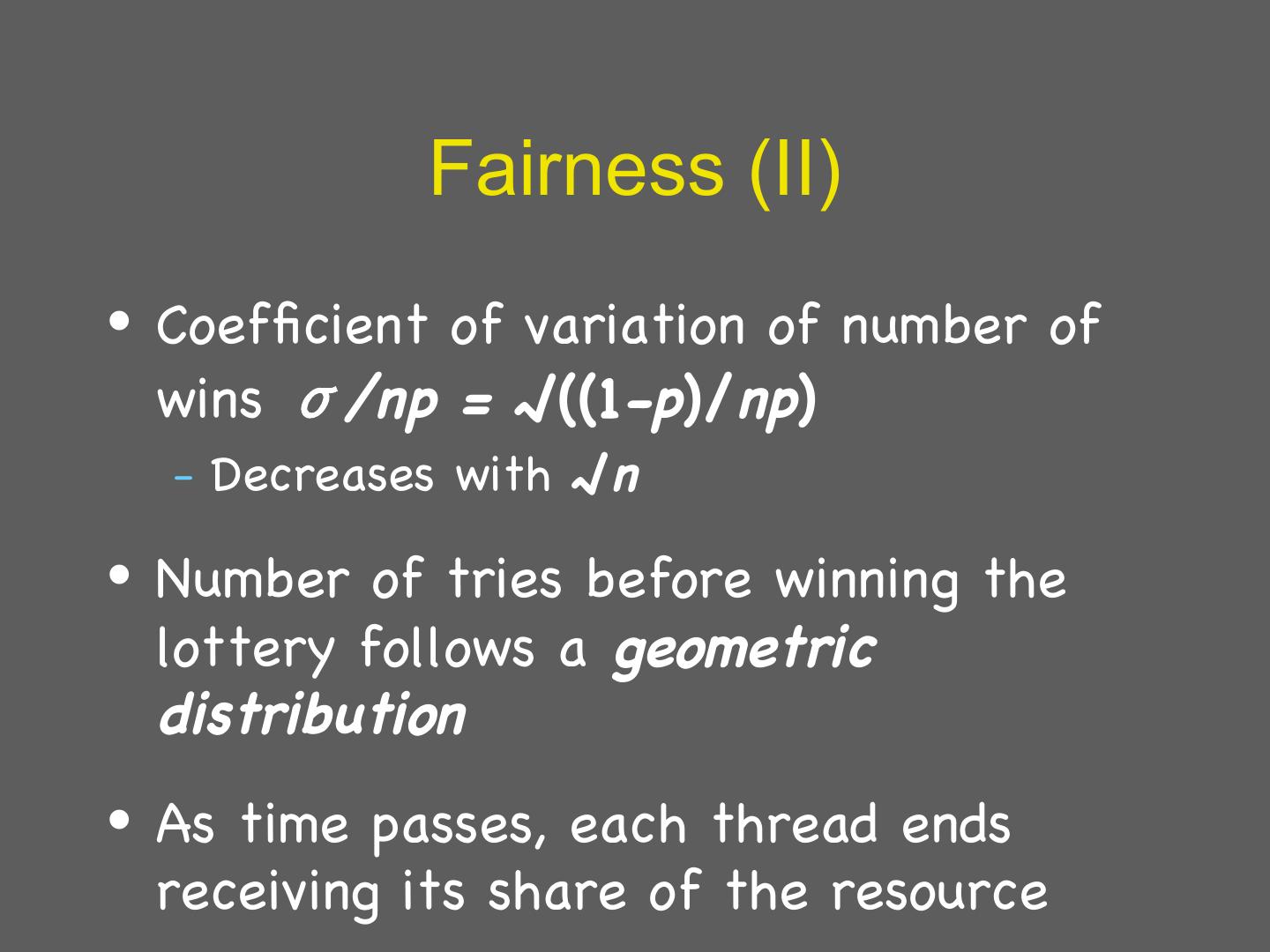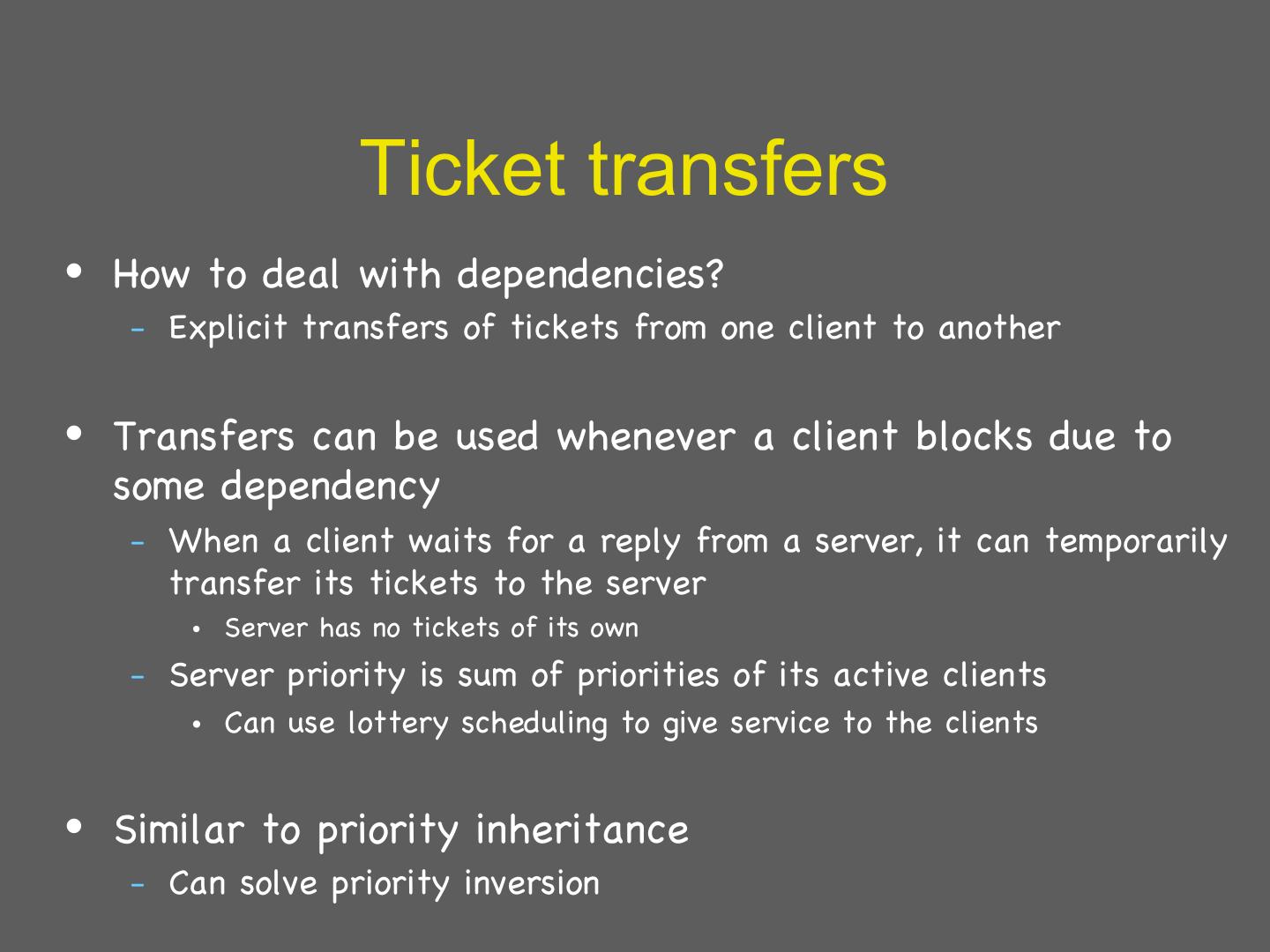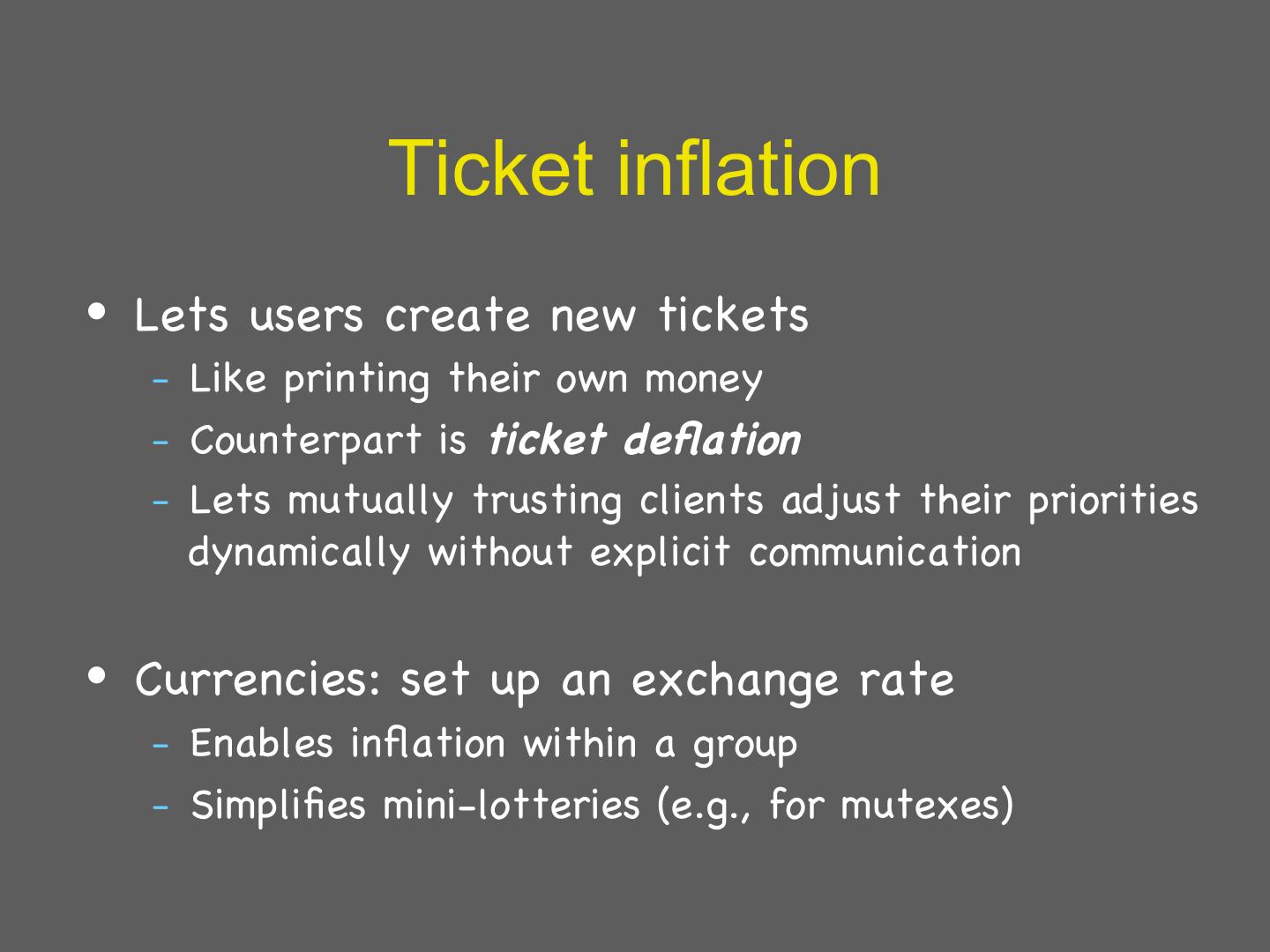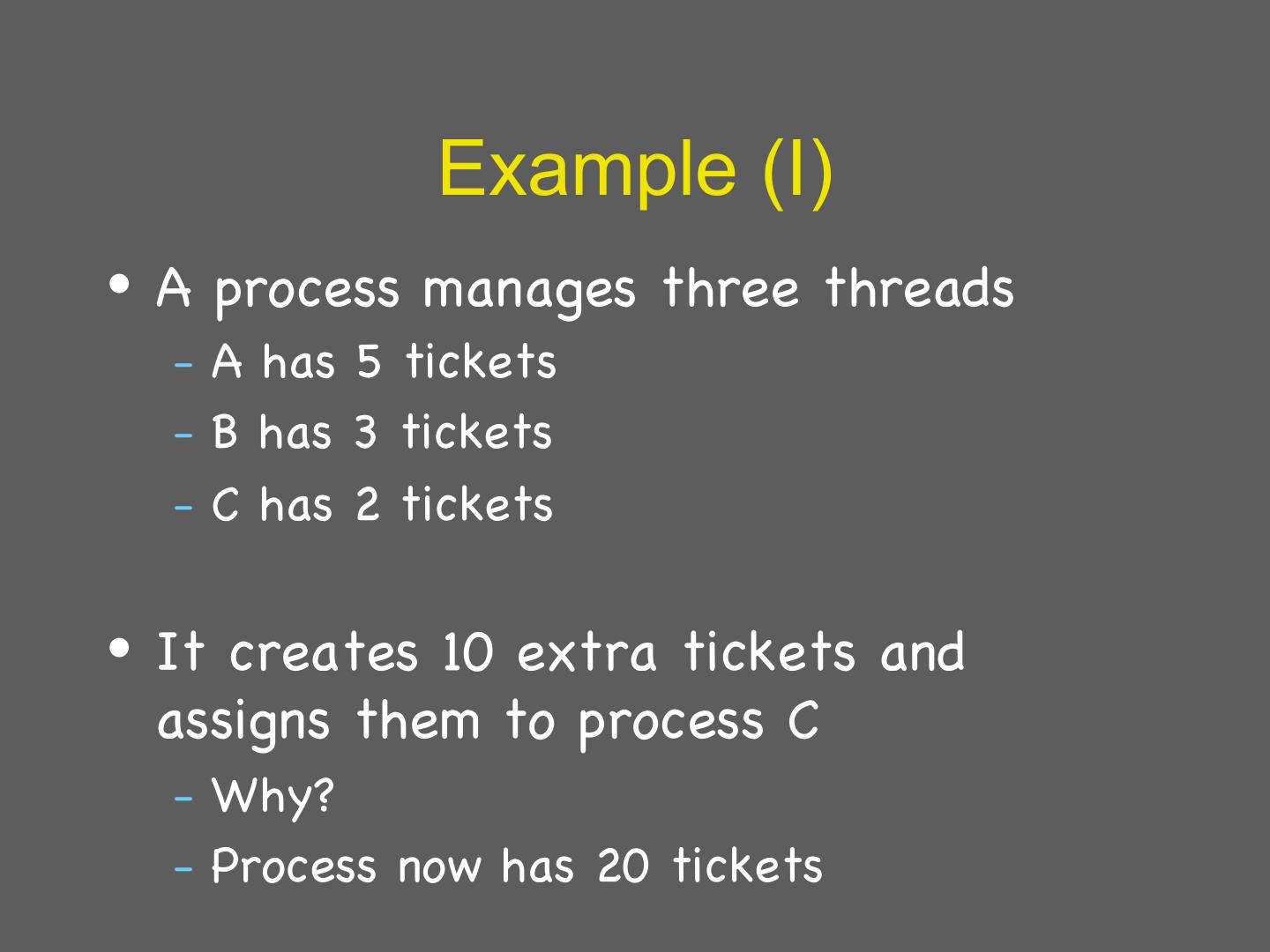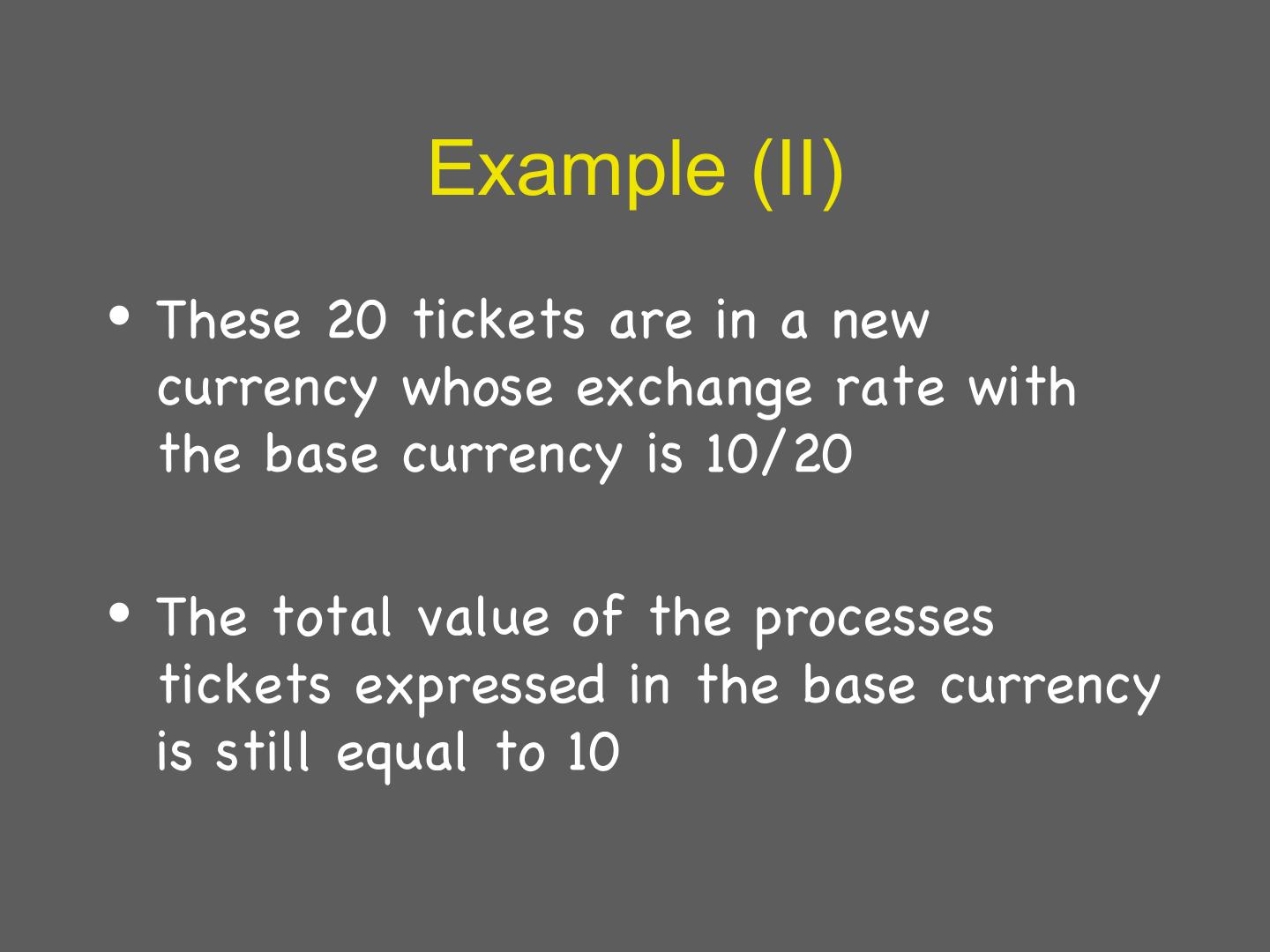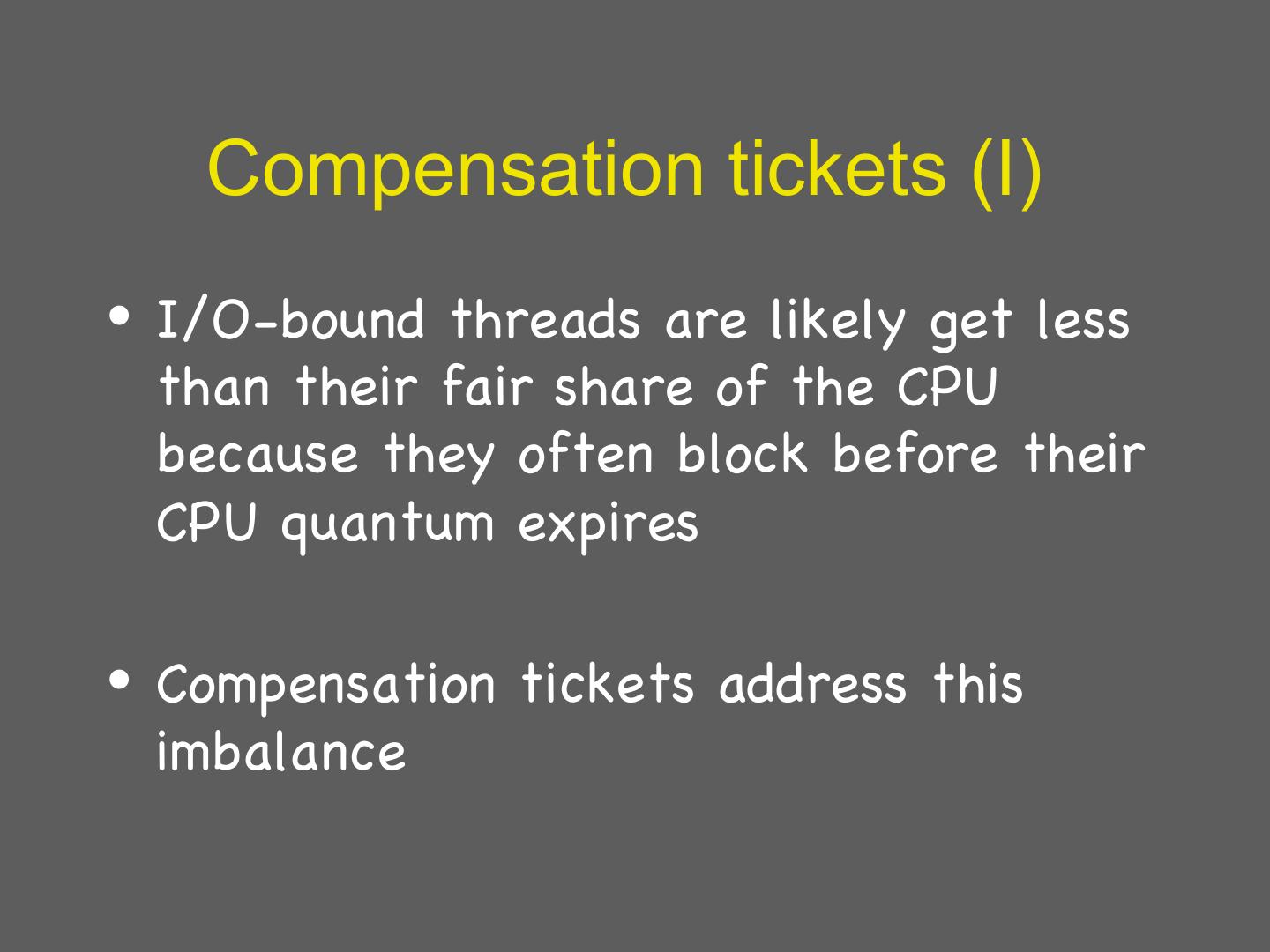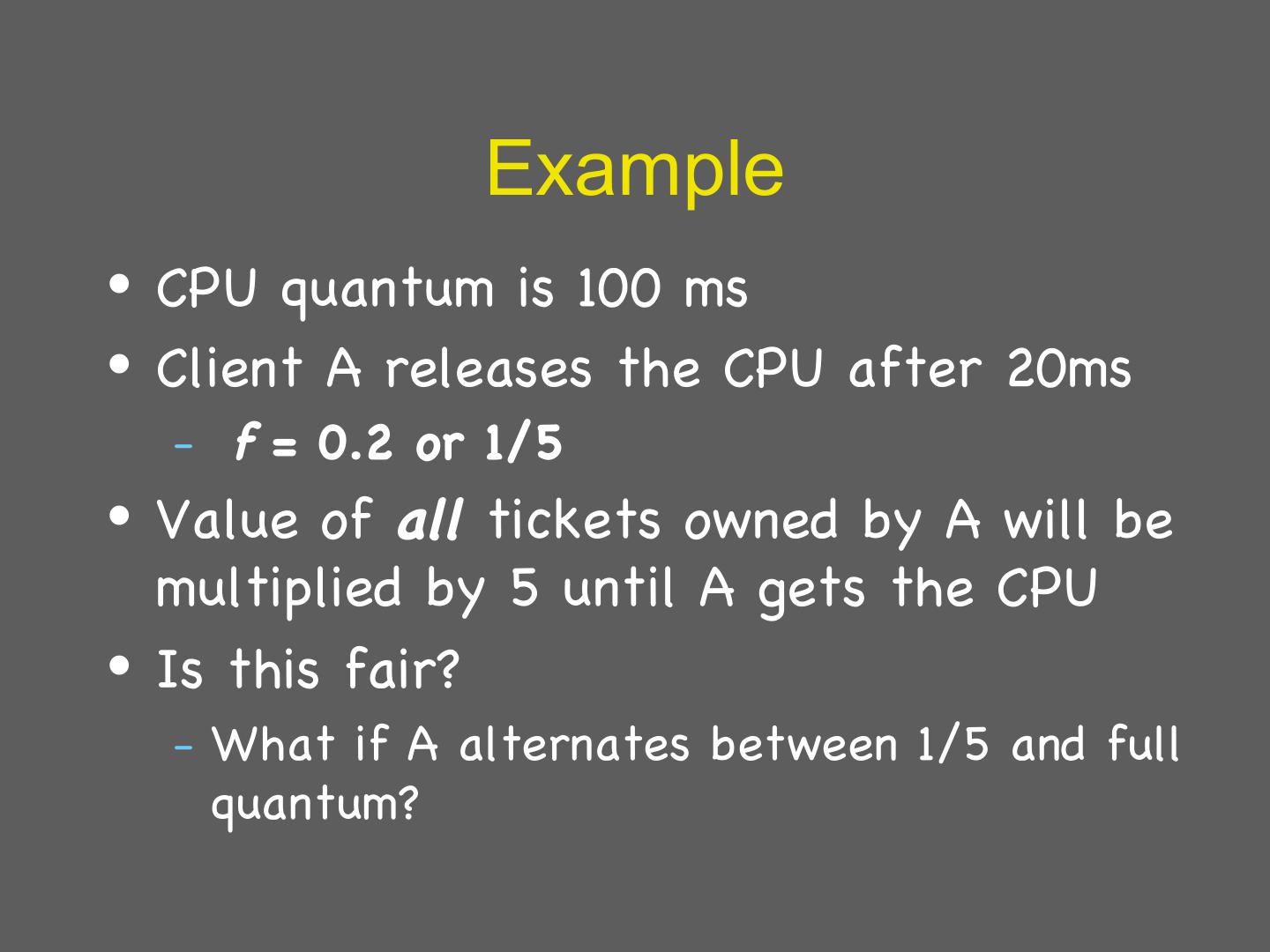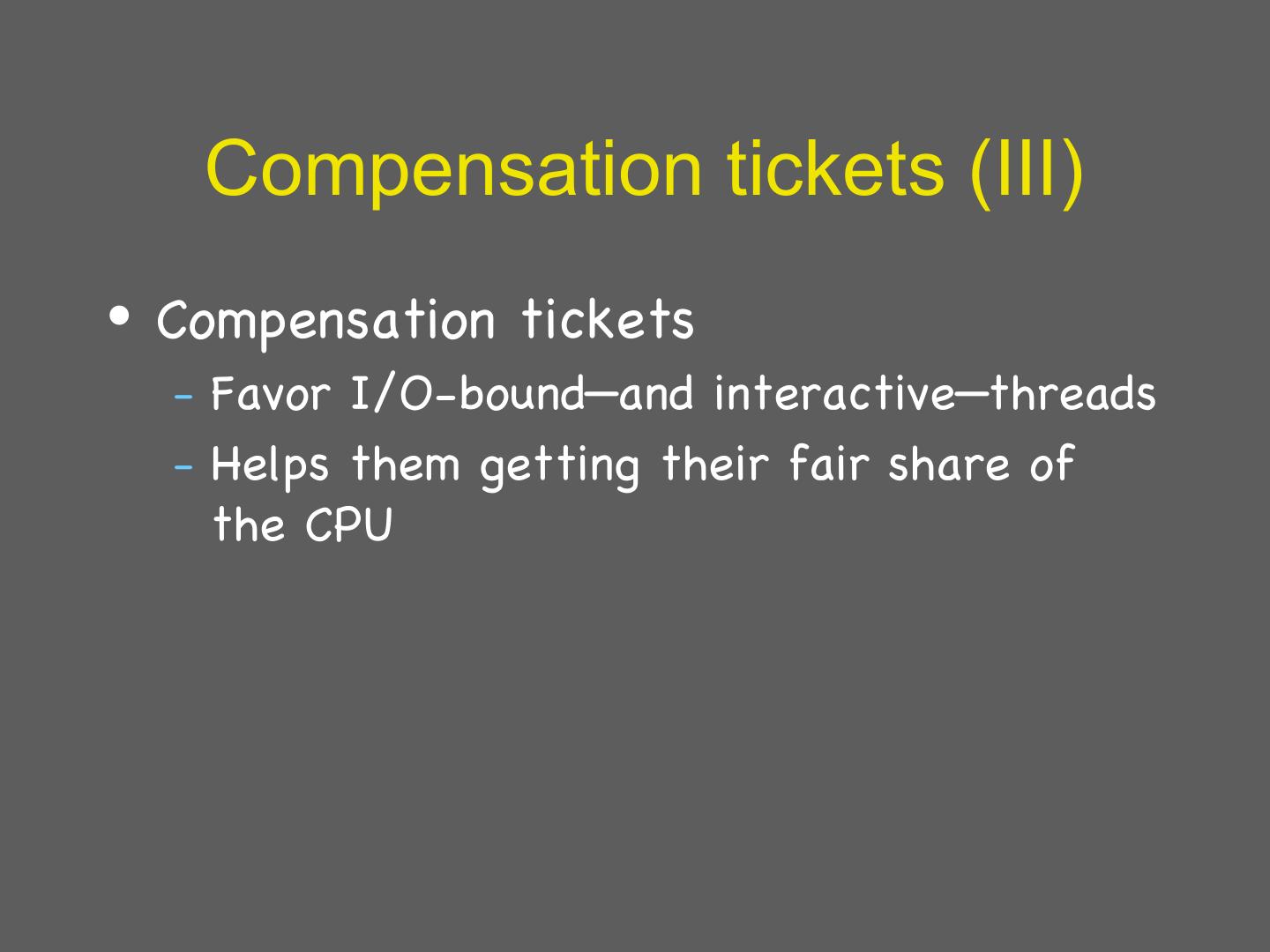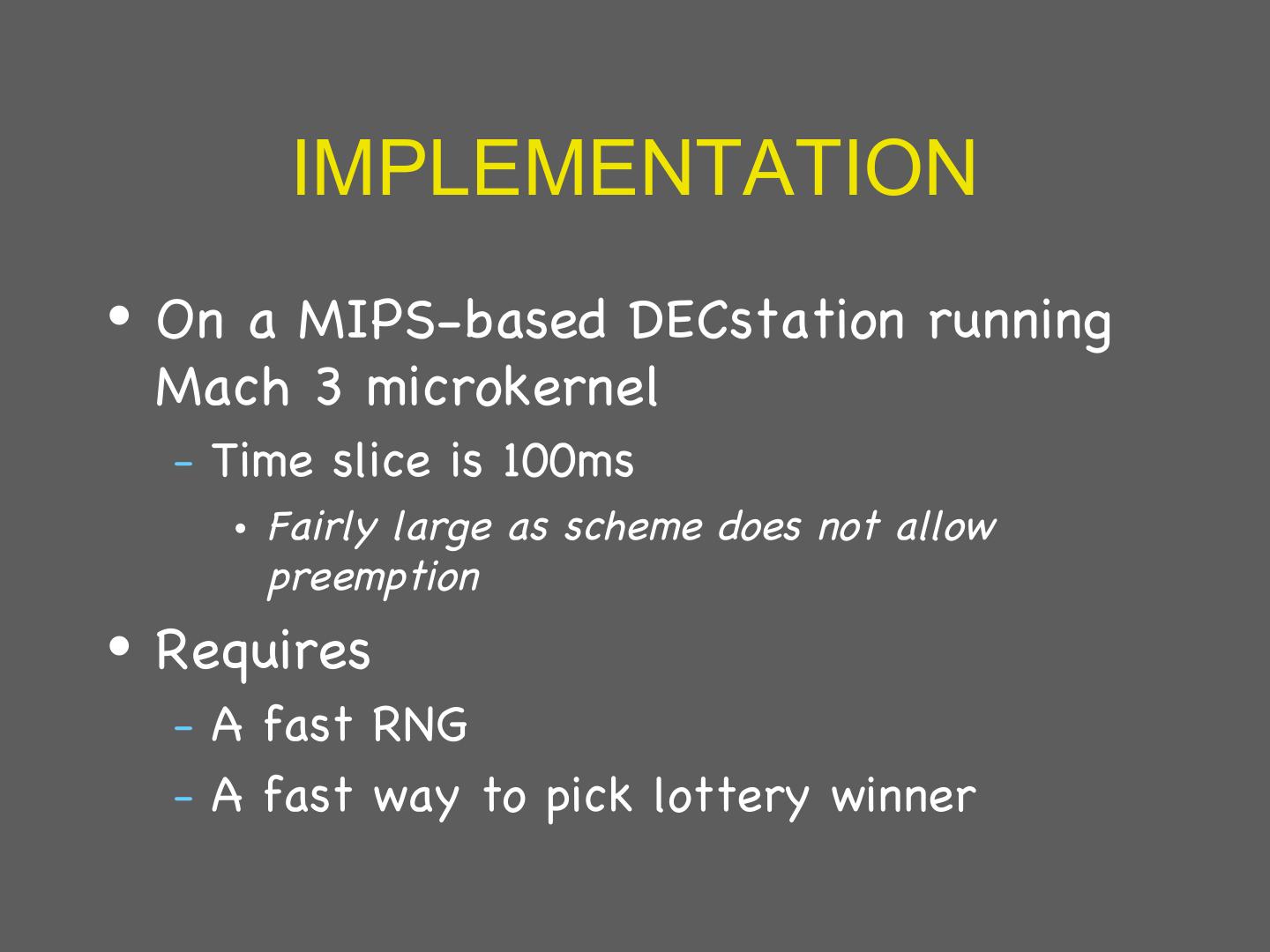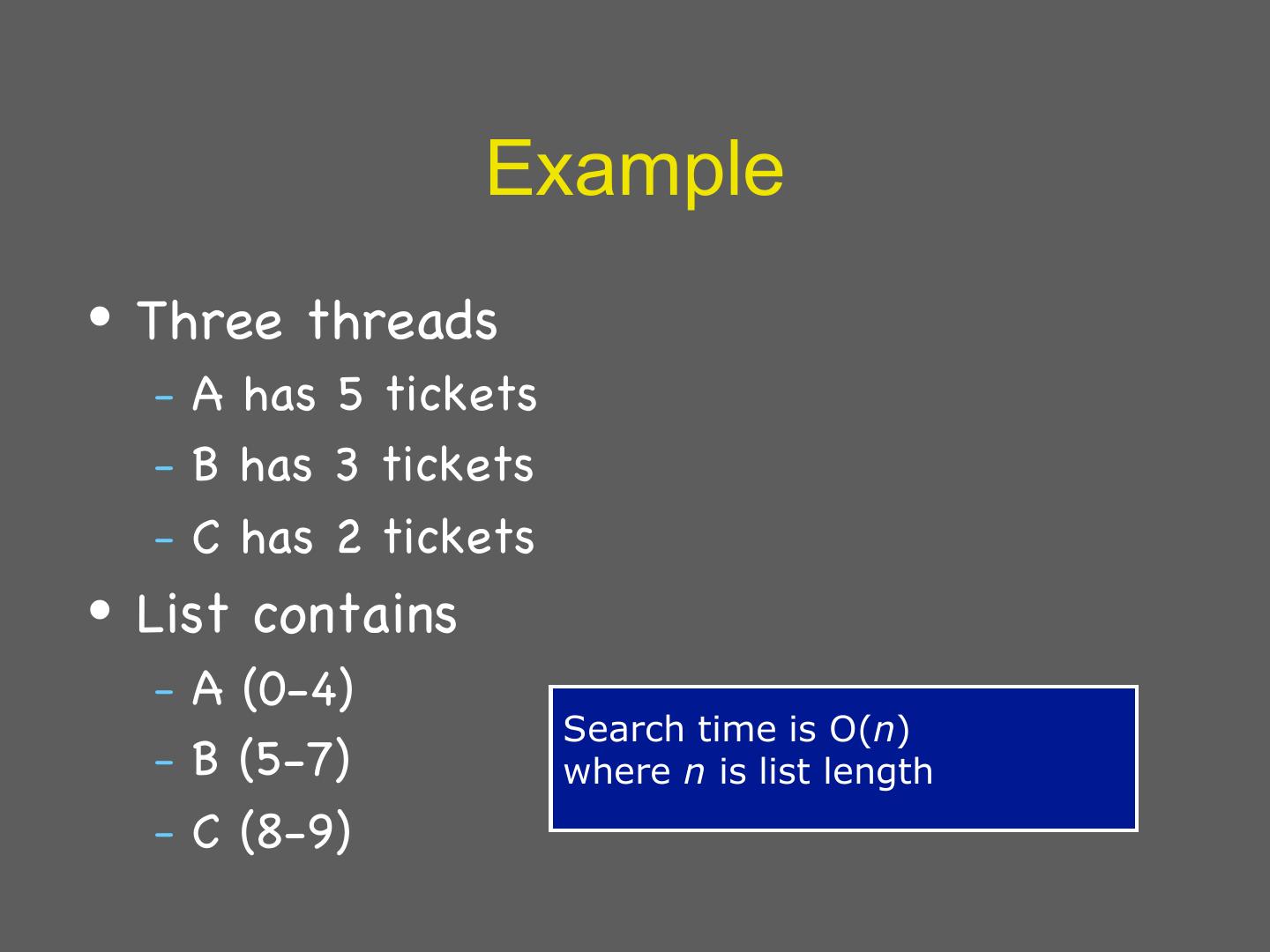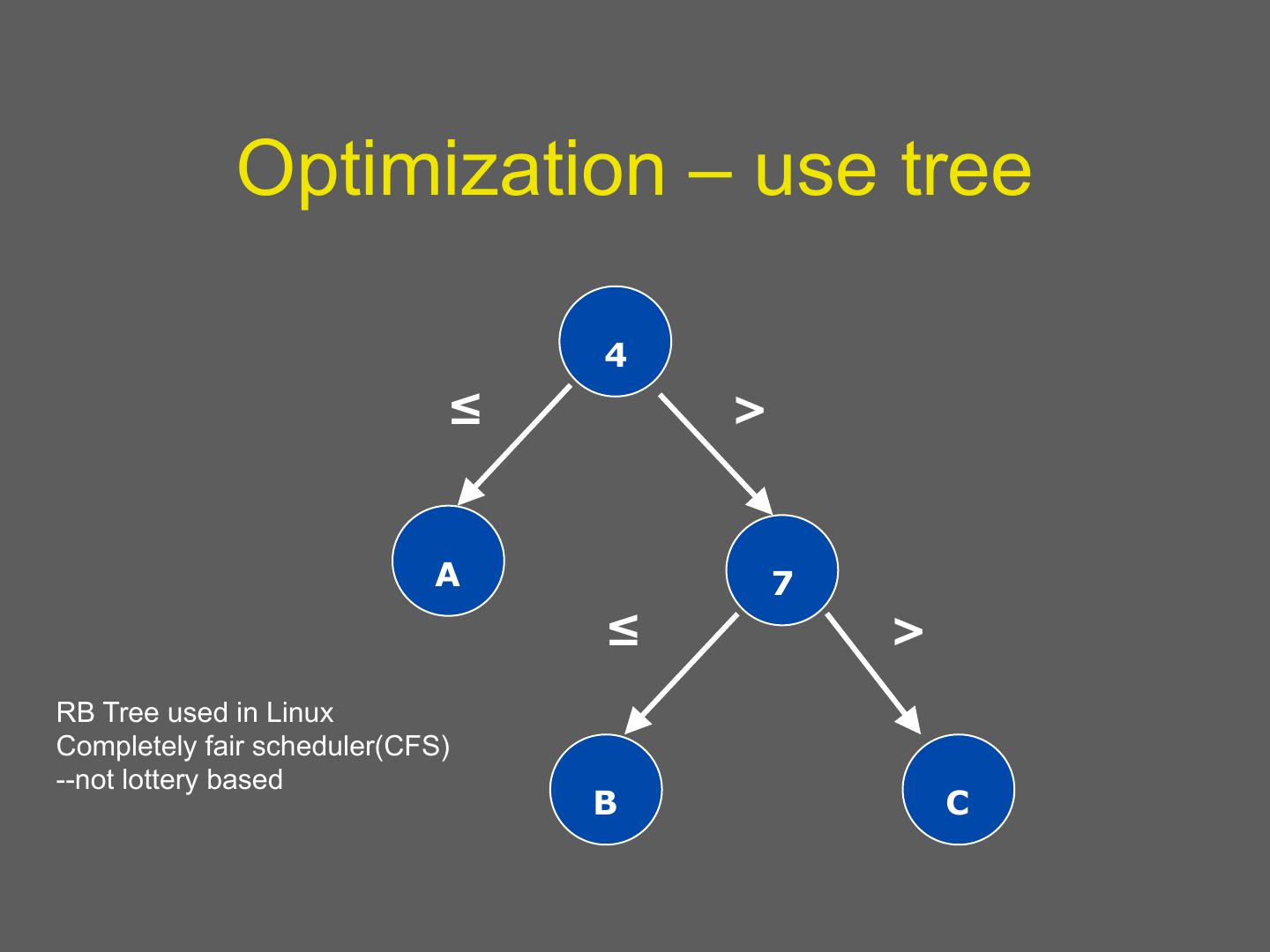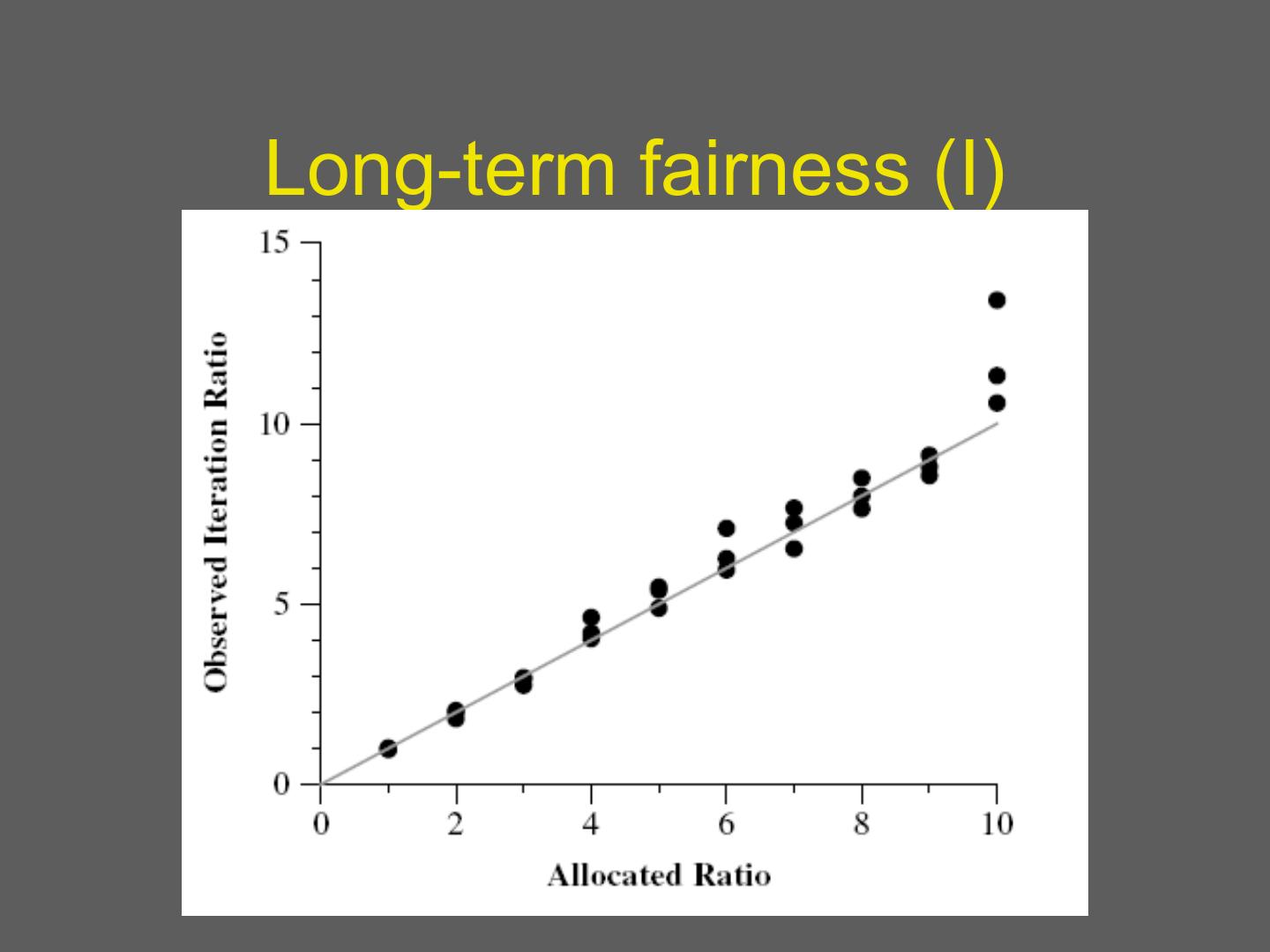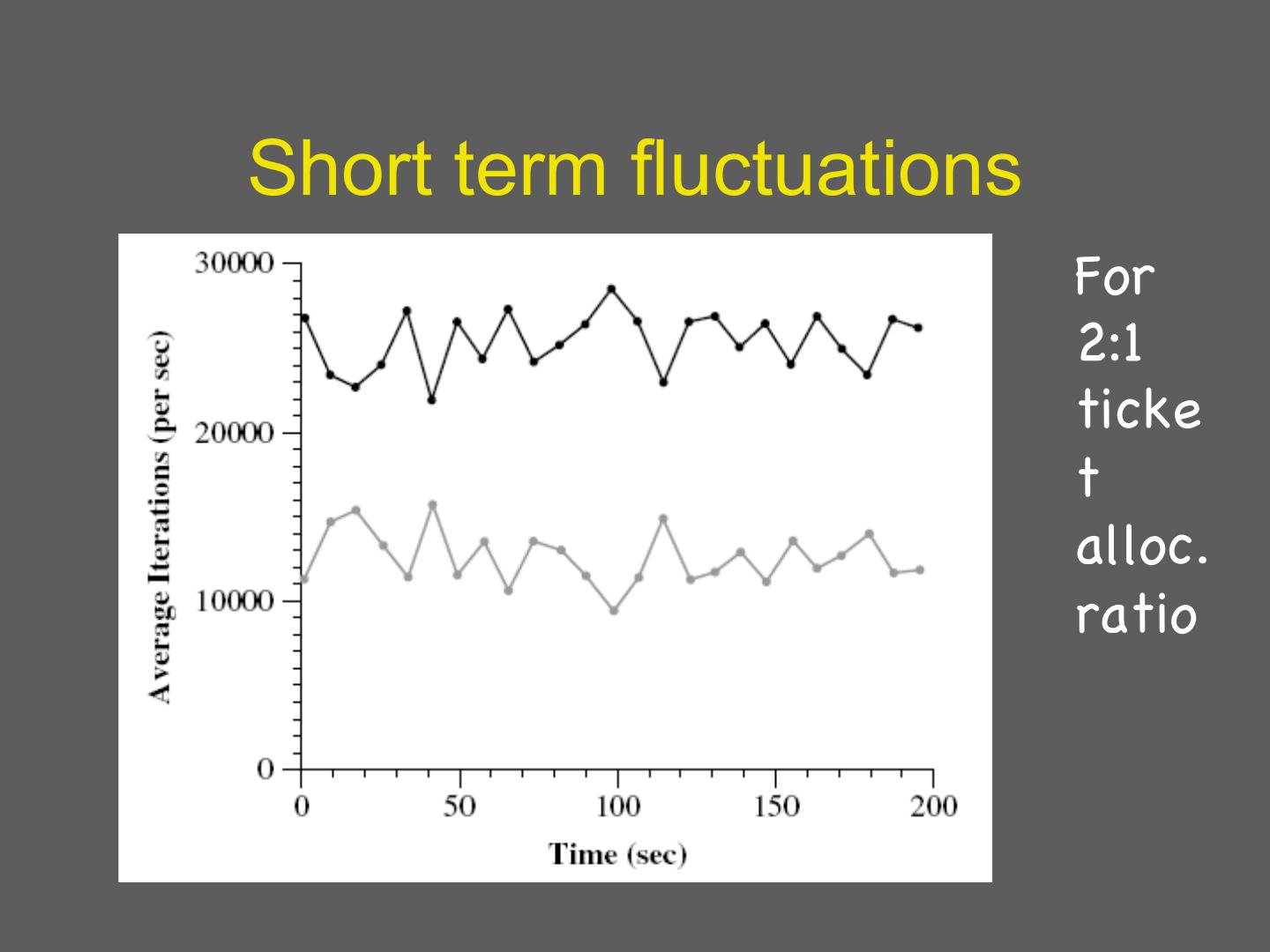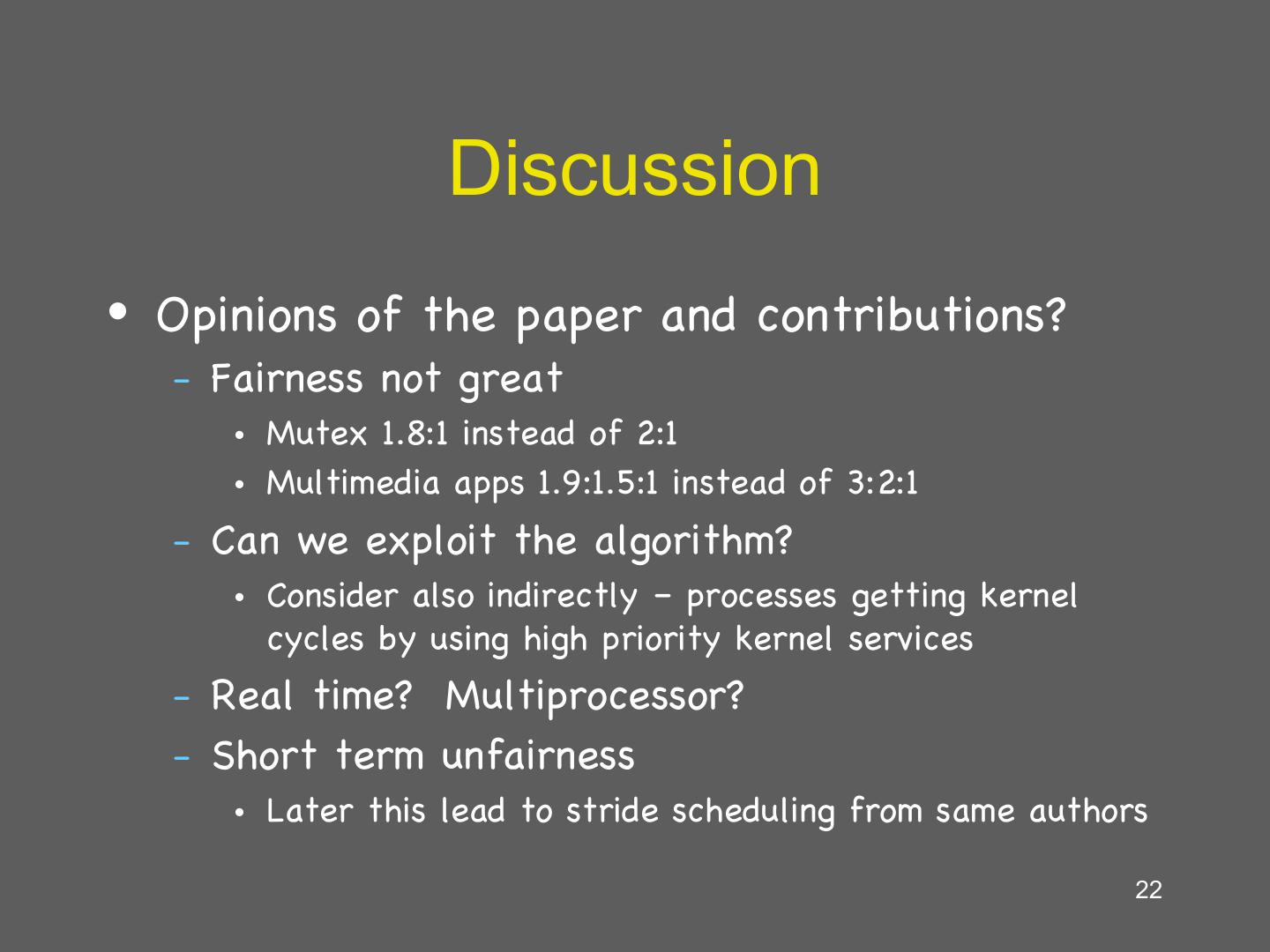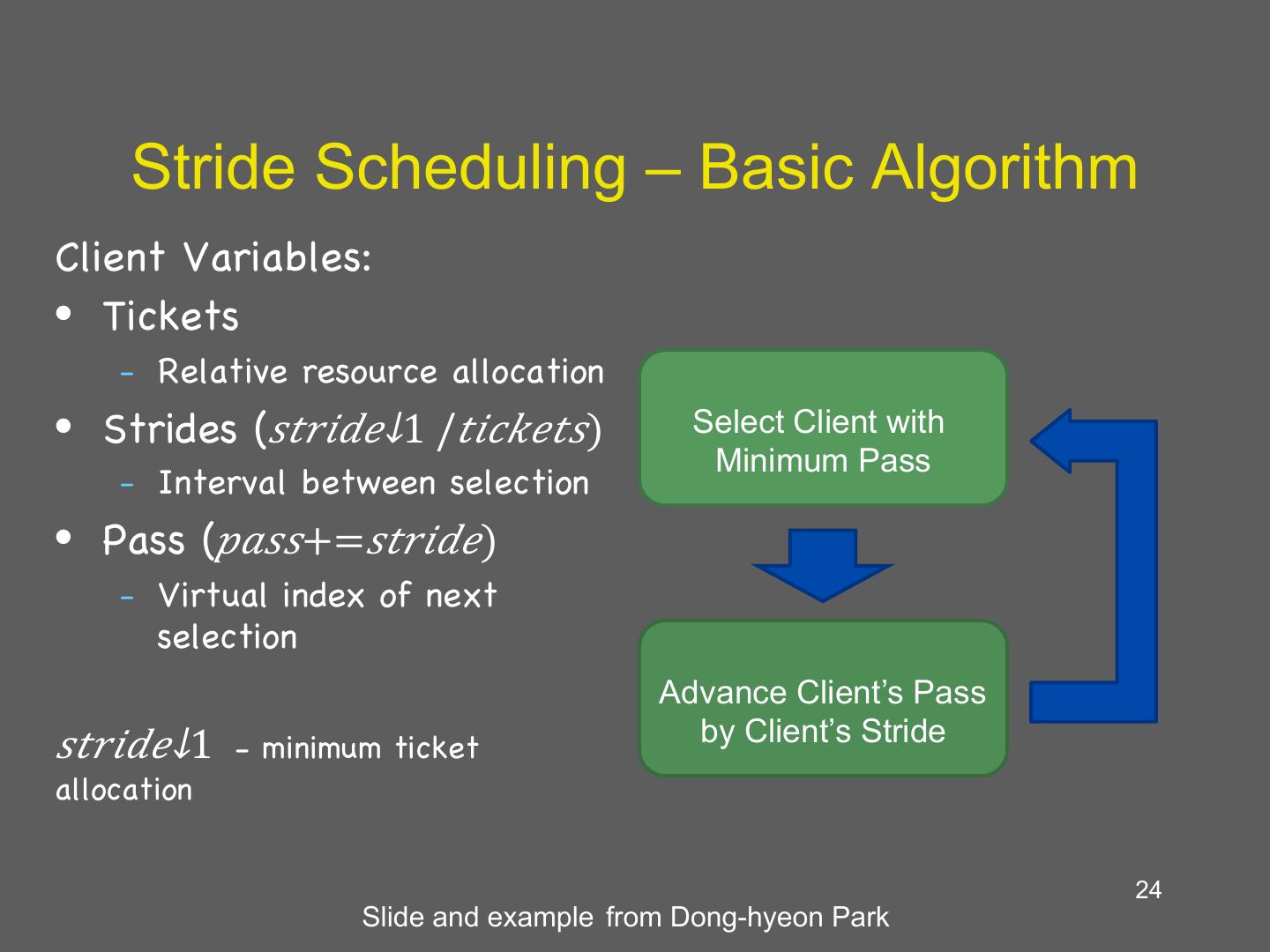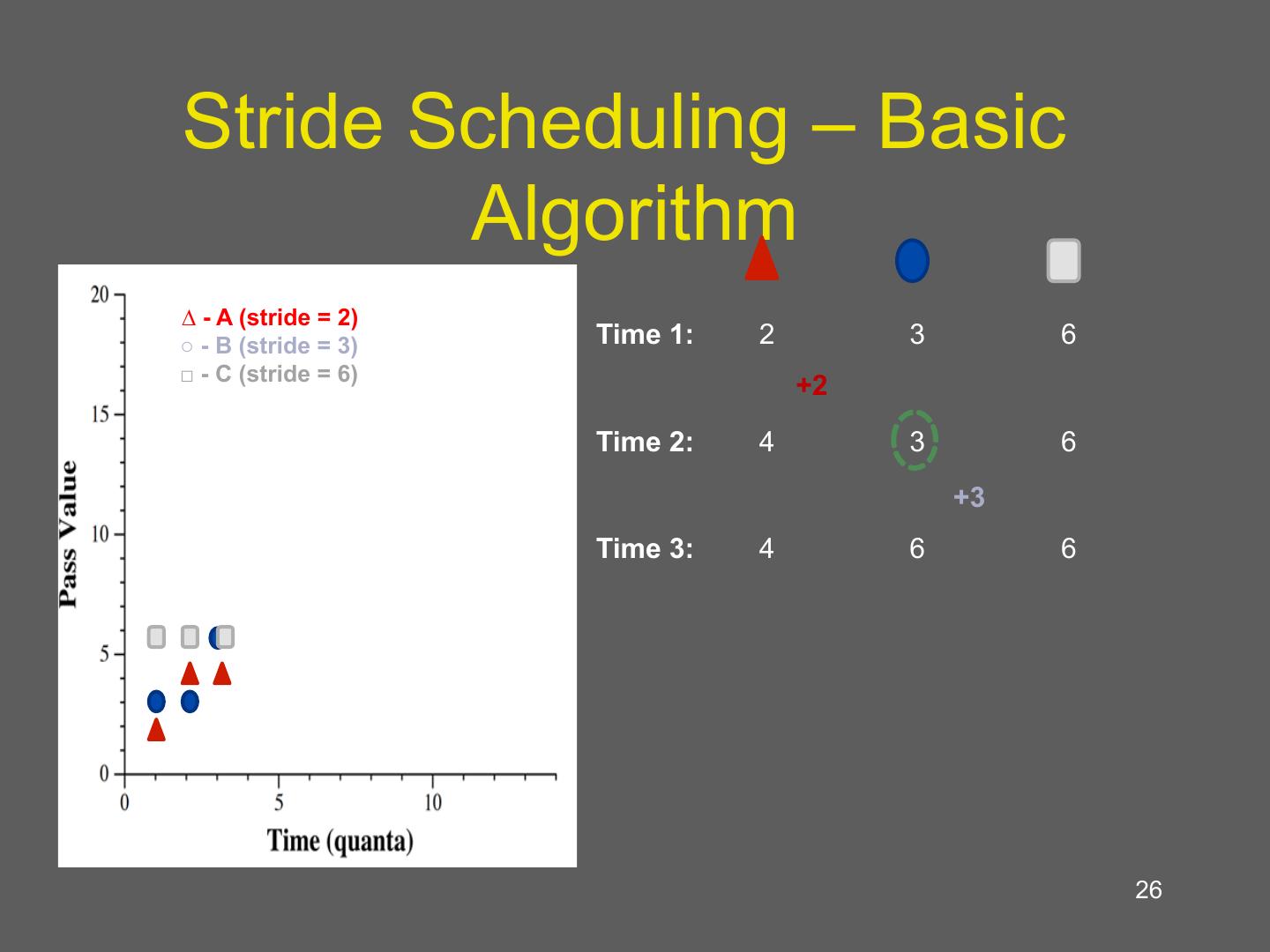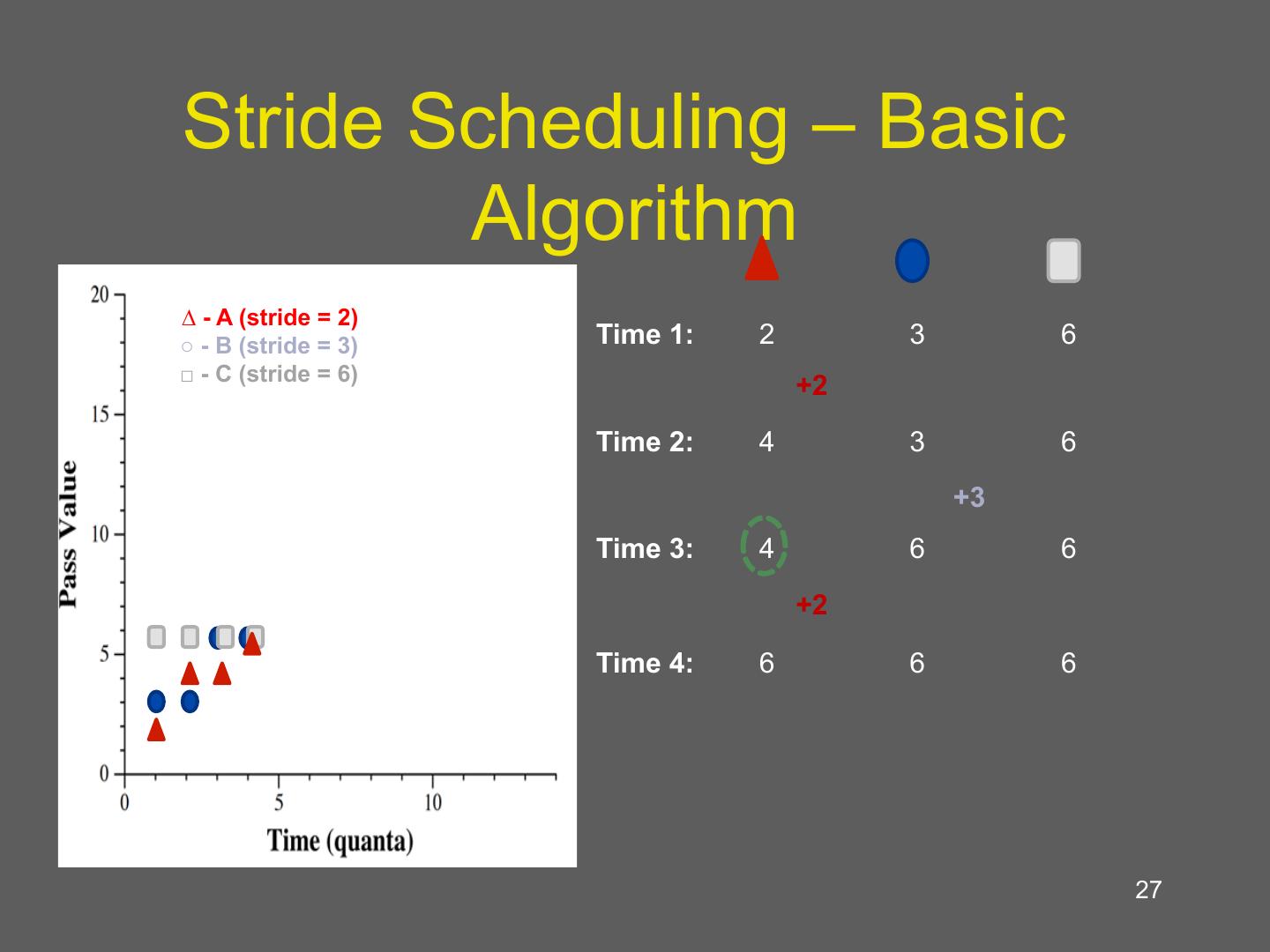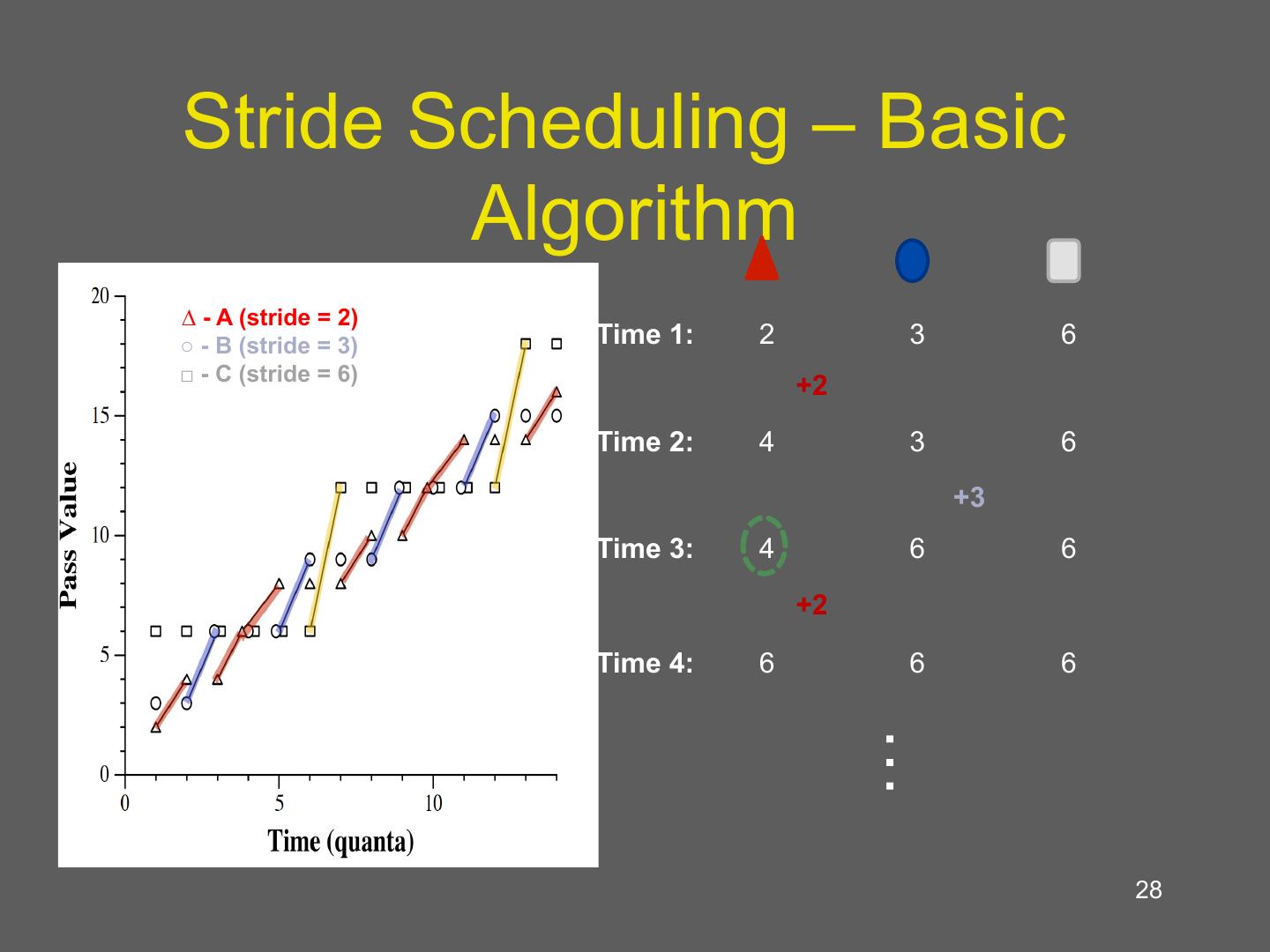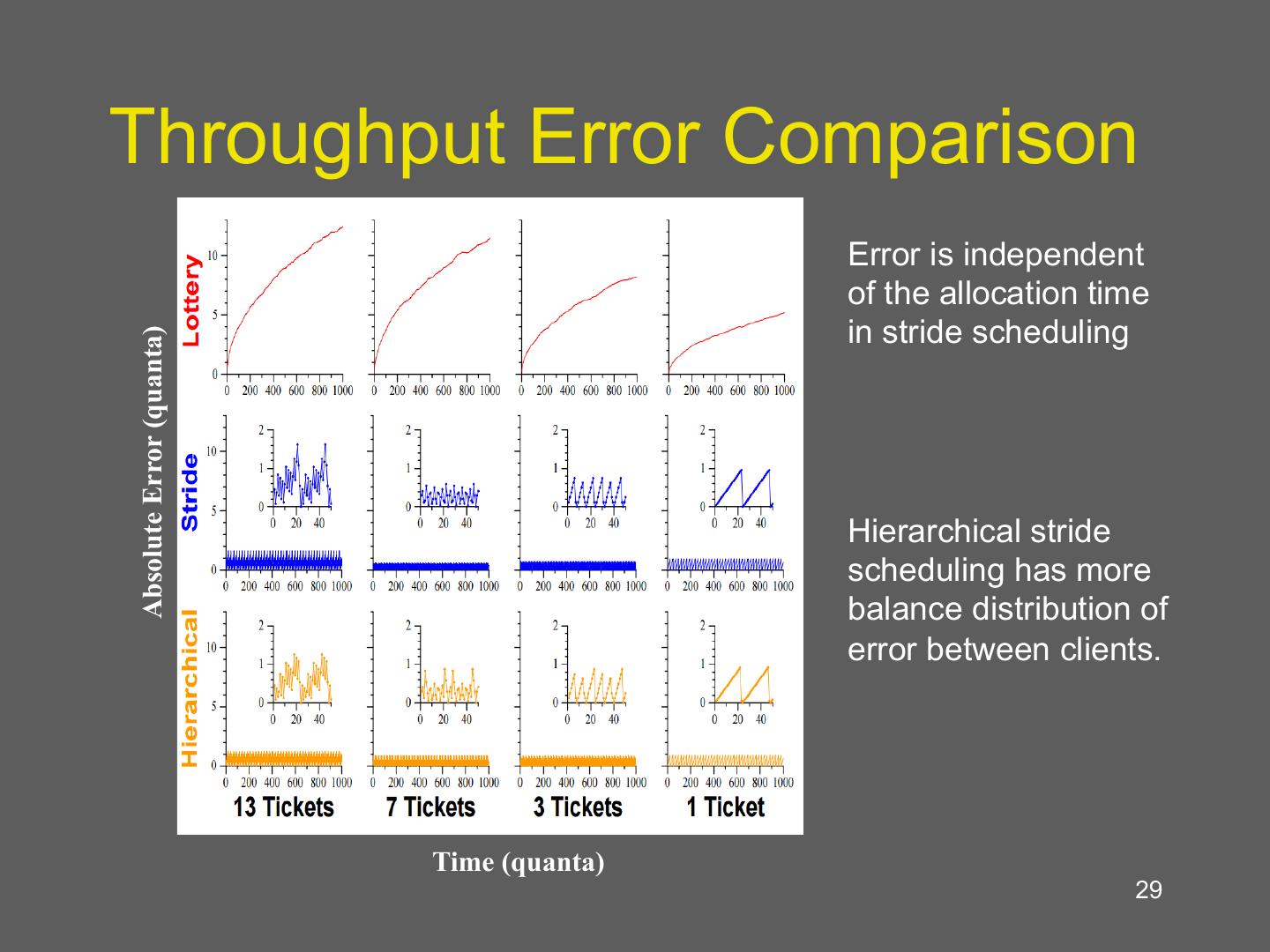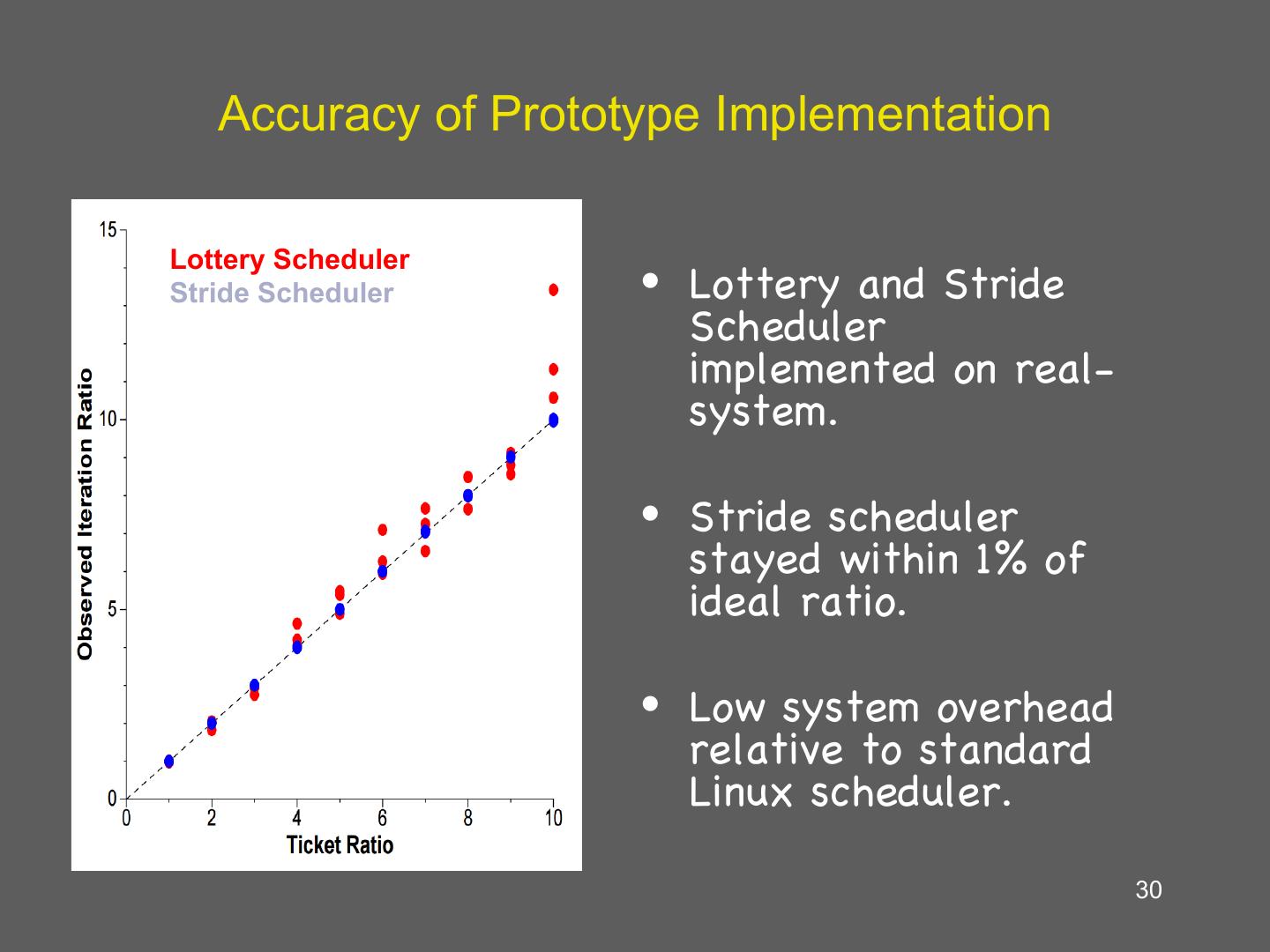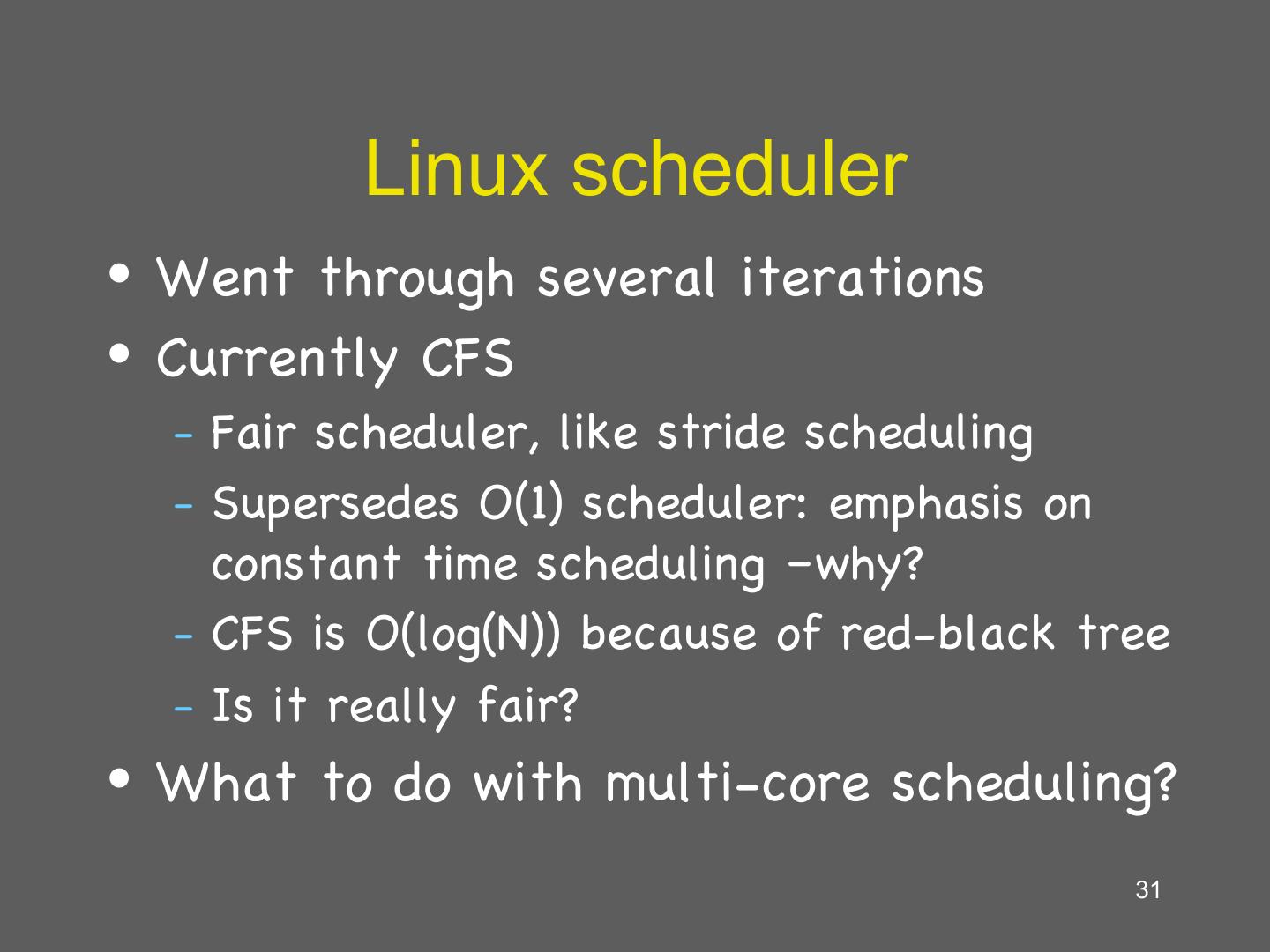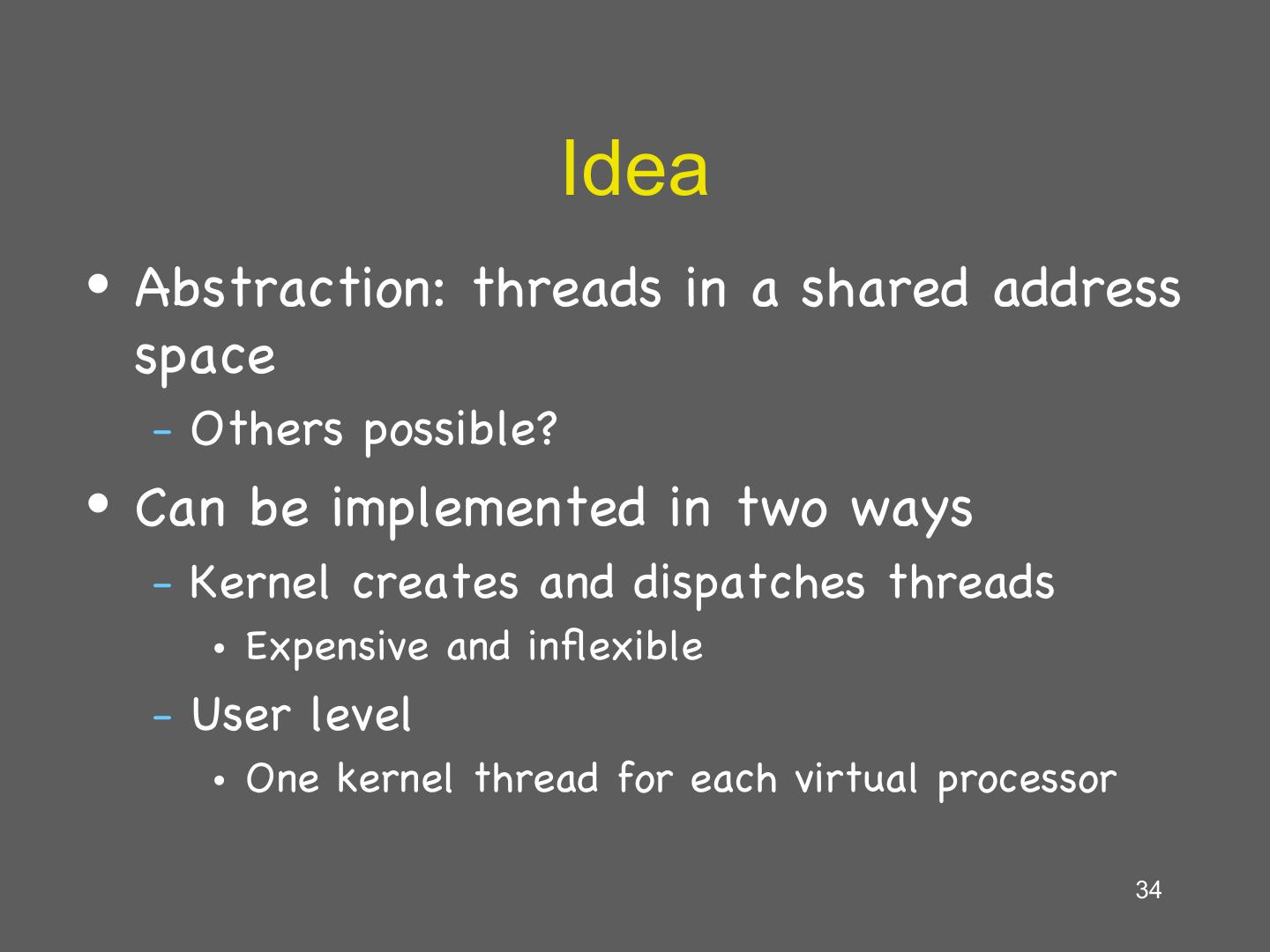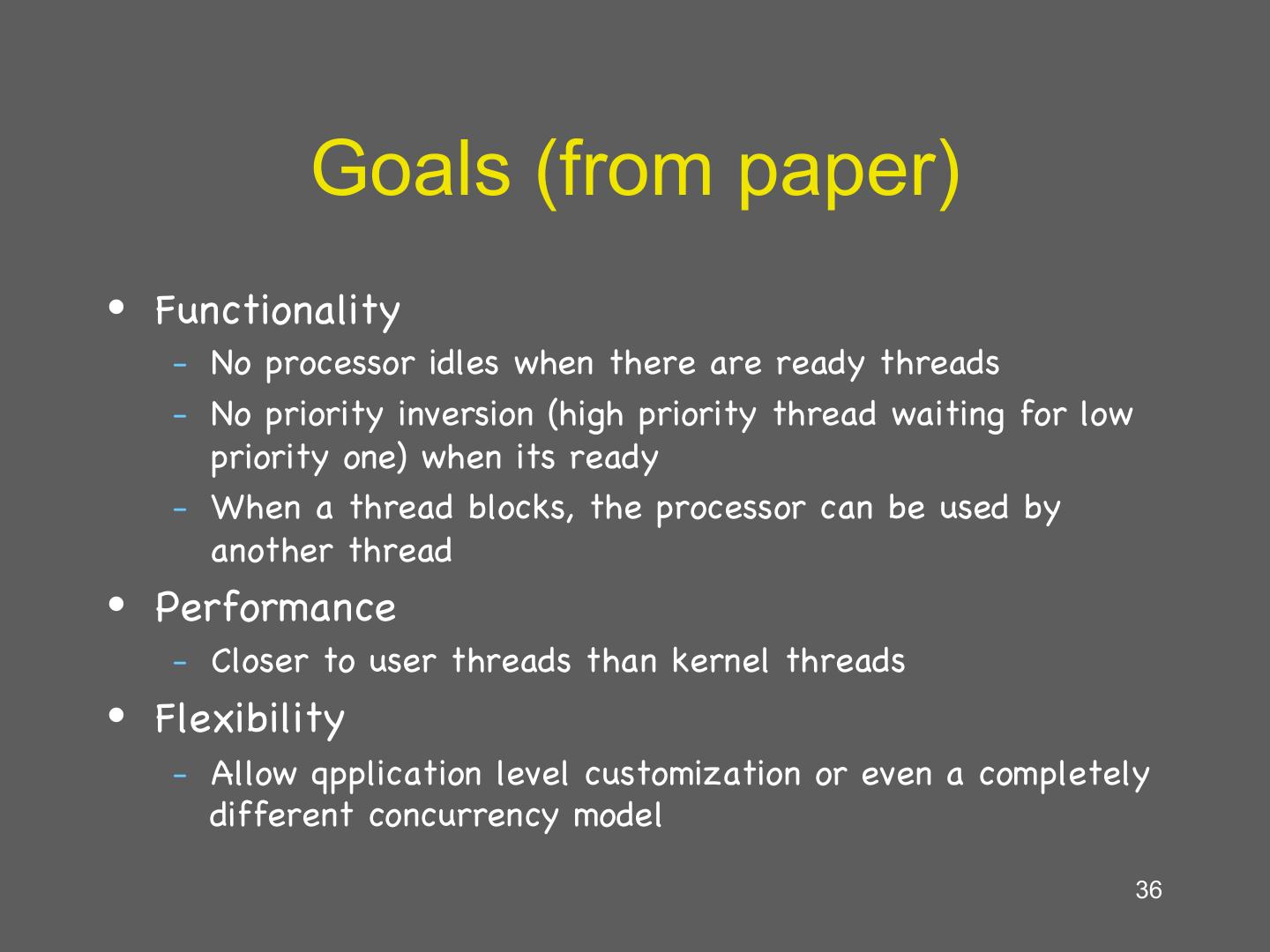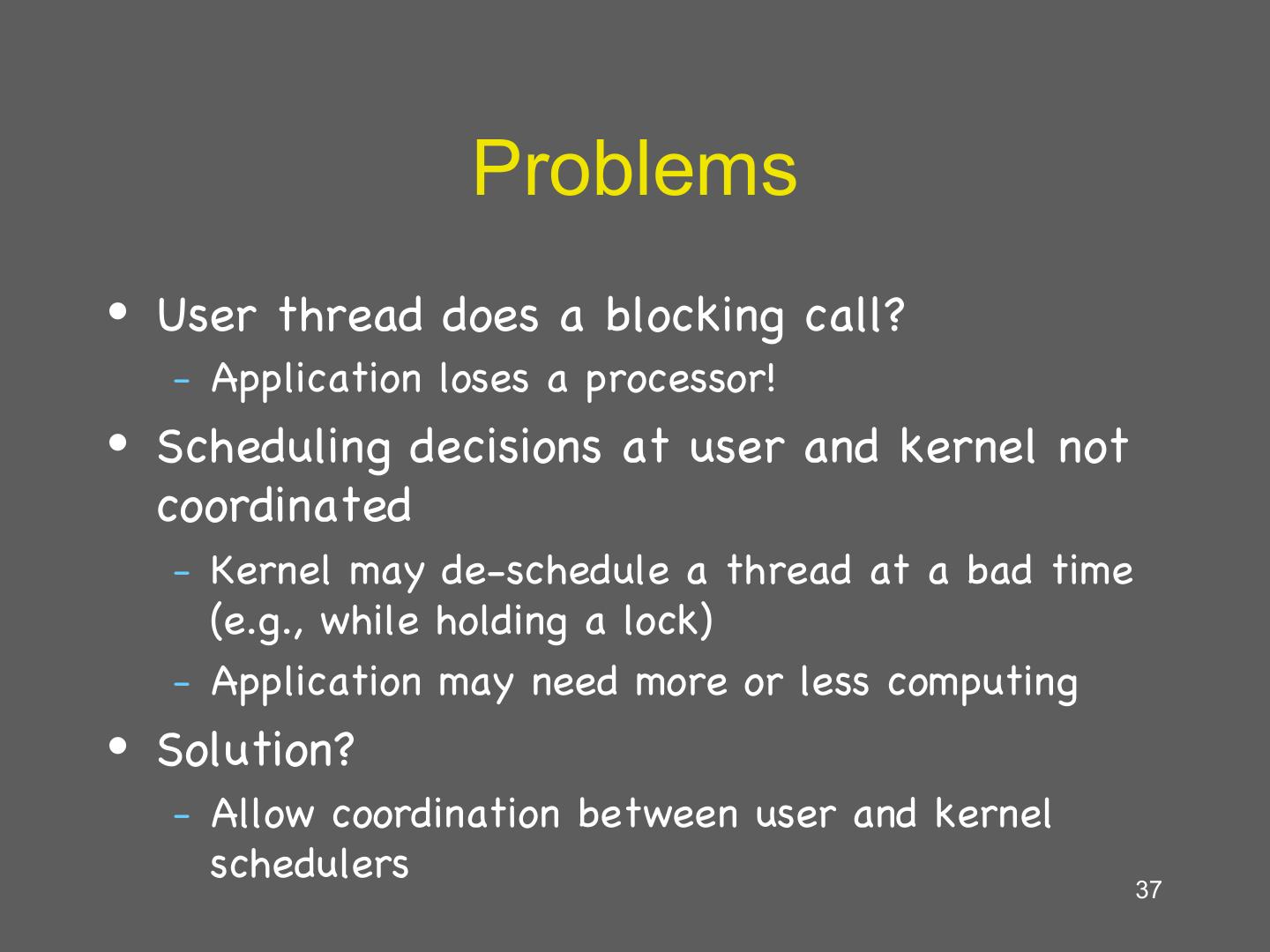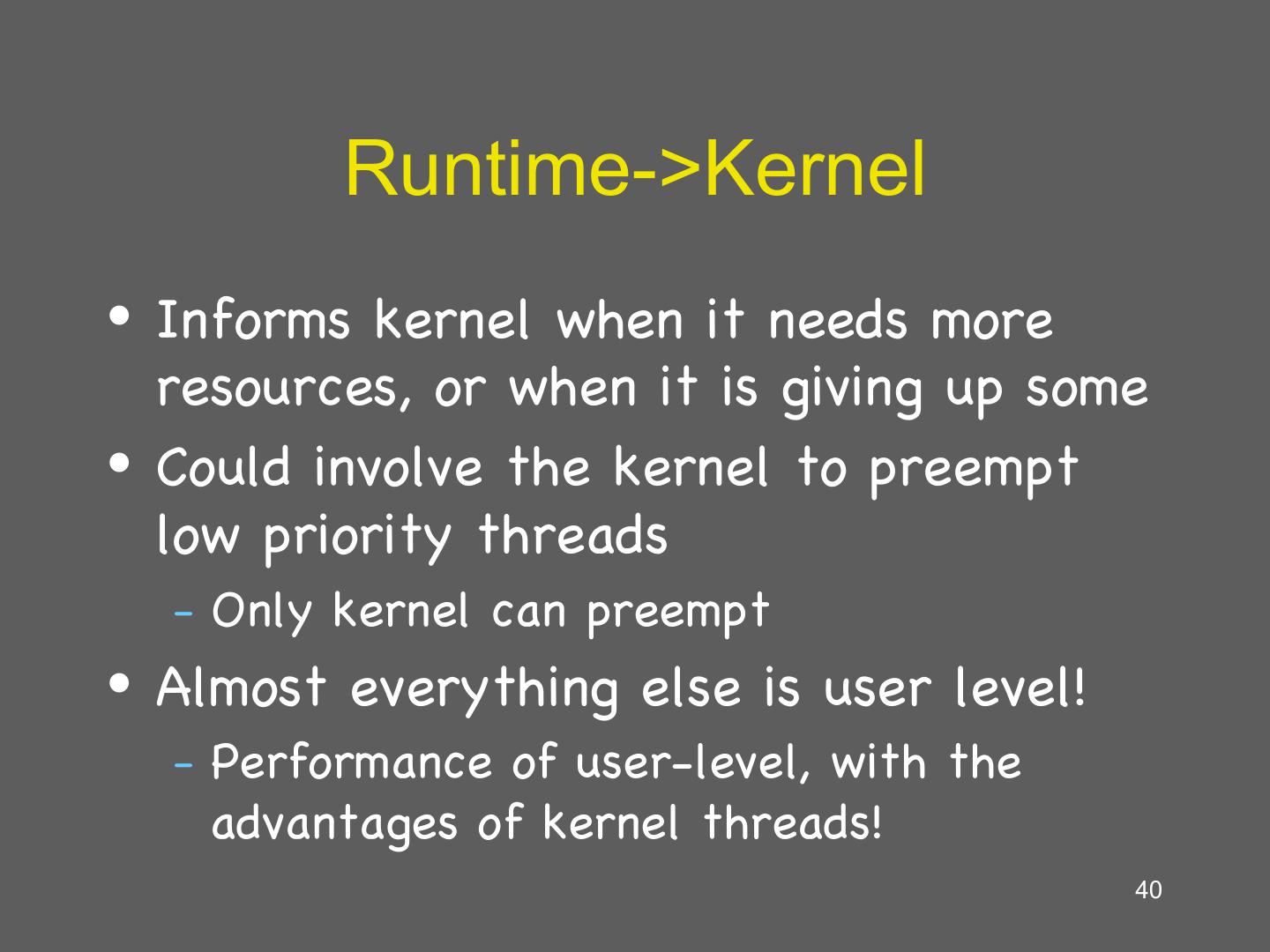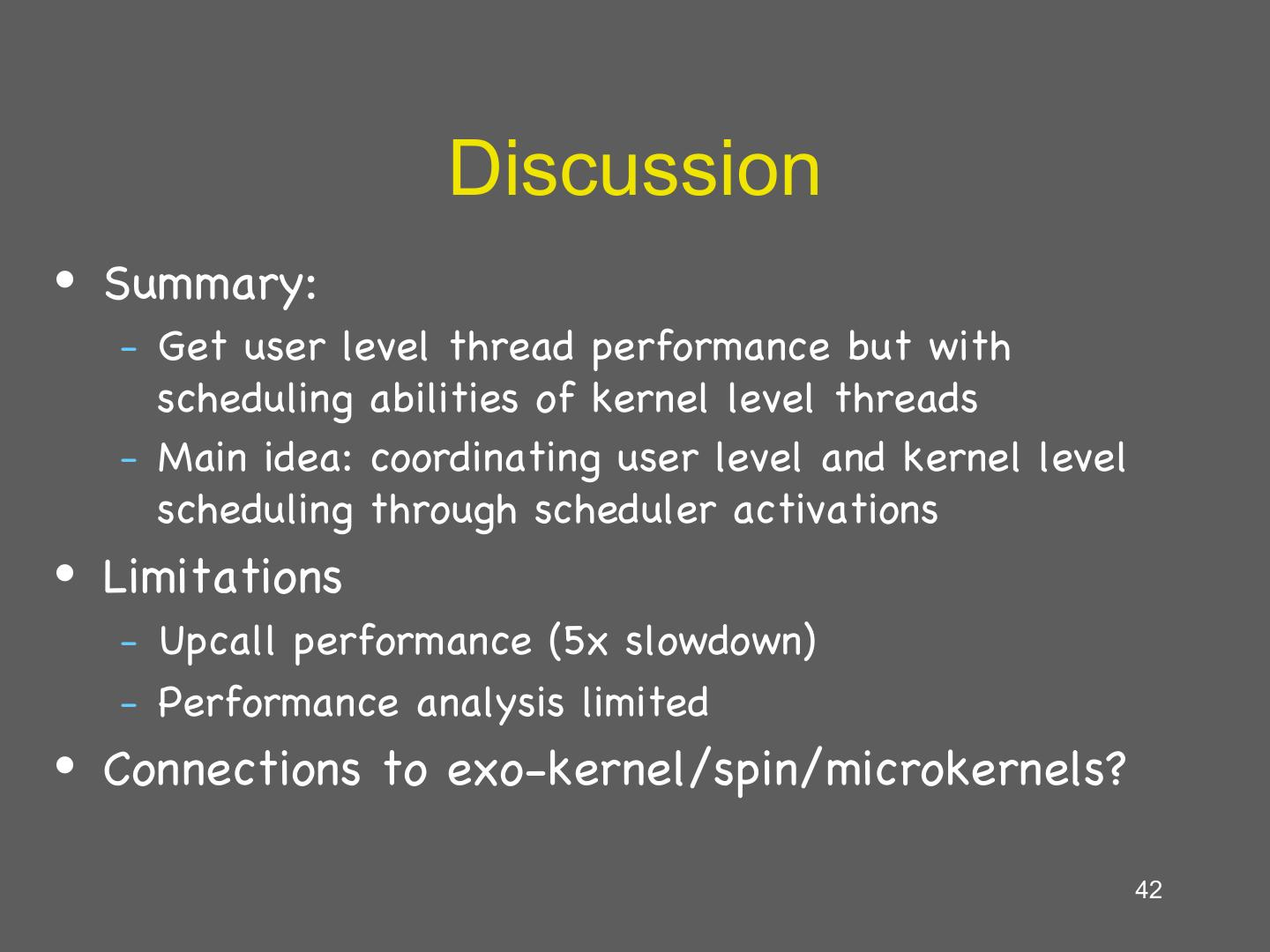- 快召唤伙伴们来围观吧
- 微博 QQ QQ空间 贴吧
- 文档嵌入链接
- <iframe src="https://www.slidestalk.com/u172/Problems_with_Traditional_schedulers?embed" frame border="0" width="640" height="360" scrolling="no" allowfullscreen="true">复制
- 微信扫一扫分享
传统调度程序的问题
展开查看详情
1 .Advanced Operating Systems (CS 202) Scheduling (2) Jan, 23, 2017
2 .LOTTERY SCHEDULING 2
3 .Problems with Traditional schedulers • Priority systems are ad hoc: highest priority always wins • Try to support fair share by adjusting priorities with a feedback loop – Works over long term – highest priority still wins all the time, but now the Unix priorities are always changing • Priority inversion: high-priority jobs can be blocked behind low-priority jobs • Schedulers are complex and difficult to control
4 . More on Priority Scheduling • For real-time (predictable) systems, priority is often used to isolate a process from those with lower priority. Priority inversion is a risk unless all resources are jointly scheduled. x->Acquire() PH priority x->Acquire() x->Release() time PL x->Acquire() How can this be avoided? PH priority PM x->Acquire() time PL 4
5 . Lottery scheduling • Elegant way to implement proportional share scheduling • Priority determined by the number of tickets each thread has: – Priority is the relative percentage of all of the tickets whose owners compete for the resource • Scheduler picks winning ticket randomly, gives owner the resource • Tickets can be used for a variety of resources
6 . Example • Three threads – A has 5 tickets – B has 3 tickets – C has 2 tickets • If all compete for the resource – B has 30% chance of being selected • If only B and C compete – B has 60% chance of being selected
7 . Its fair • Lottery scheduling is probabilistically fair • If a thread has a t tickets out of T – Its probability of winning a lottery is p = t/T – Its expected number of wins over n drawings is np • Binomial distribution • Variance σ2 = np(1 – p)
8 . Fairness (II) • Coefficient of variation of number of wins σ/np = √((1-p)/np) – Decreases with √n • Number of tries before winning the lottery follows a geometric distribution • As time passes, each thread ends receiving its share of the resource
9 . Ticket transfers • How to deal with dependencies? – Explicit transfers of tickets from one client to another • Transfers can be used whenever a client blocks due to some dependency – When a client waits for a reply from a server, it can temporarily transfer its tickets to the server • Server has no tickets of its own – Server priority is sum of priorities of its active clients • Can use lottery scheduling to give service to the clients • Similar to priority inheritance – Can solve priority inversion
10 . Ticket inflation • Lets users create new tickets – Like printing their own money – Counterpart is ticket deflation – Lets mutually trusting clients adjust their priorities dynamically without explicit communication • Currencies: set up an exchange rate – Enables inflation within a group – Simplifies mini-lotteries (e.g., for mutexes)
11 . Example (I) • A process manages three threads – A has 5 tickets – B has 3 tickets – C has 2 tickets • It creates 10 extra tickets and assigns them to process C – Why? – Process now has 20 tickets
12 . Example (II) • These 20 tickets are in a new currency whose exchange rate with the base currency is 10/20 • The total value of the processes tickets expressed in the base currency is still equal to 10
13 . Compensation tickets (I) • I/O-bound threads are likely get less than their fair share of the CPU because they often block before their CPU quantum expires • Compensation tickets address this imbalance
14 . Compensation tickets (II) • A client that consumes only a fraction f of its CPU quantum can be granted a compensation ticket – Ticket inflates the value of all client tickets by 1/f until the client starts gets the CPU
15 . Example • CPU quantum is 100 ms • Client A releases the CPU after 20ms – f = 0.2 or 1/5 • Value of all tickets owned by A will be multiplied by 5 until A gets the CPU • Is this fair? – What if A alternates between 1/5 and full quantum?
16 . Compensation tickets (III) • Compensation tickets – Favor I/O-bound—and interactive—threads – Helps them getting their fair share of the CPU
17 . IMPLEMENTATION • On a MIPS-based DECstation running Mach 3 microkernel – Time slice is 100ms • Fairly large as scheme does not allow preemption • Requires – A fast RNG – A fast way to pick lottery winner
18 . Example • Three threads – A has 5 tickets – B has 3 tickets – C has 2 tickets • List contains – A (0-4) Search time is O(n) – B (5-7) where n is list length – C (8-9)
19 . Optimization – use tree 4 ≤ > A 7 ≤ > RB Tree used in Linux Completely fair scheduler(CFS) --not lottery based B C
20 .Long-term fairness (I)
21 .Short term fluctuations For 2:1 ticke t alloc. ratio
22 . Discussion • Opinions of the paper and contributions? – Fairness not great • Mutex 1.8:1 instead of 2:1 • Multimedia apps 1.9:1.5:1 instead of 3:2:1 – Can we exploit the algorithm? • Consider also indirectly – processes getting kernel cycles by using high priority kernel services – Real time? Multiprocessor? – Short term unfairness • Later this lead to stride scheduling from same authors 22
23 . Stride scheduling • Deterministic version of lottery scheduling • Mark time virtually (counting passes) – Each process has a stride: number of passes between being scheduled – Stride inversely proportional to number of tickets – Regular, predictable schedule • Can also use compensation tickets • Similar to weighted fair queuing – Linux CFS is similar 23
24 . Stride Scheduling – Basic Algorithm Client Variables: • Tickets – Relative resource allocation • Strides (𝑠𝑡𝑟𝑖𝑑𝑒↓1 /𝑡𝑖𝑐𝑘𝑒𝑡𝑠) Select Client with Minimum Pass – Interval between selection • Pass (𝑝𝑎𝑠𝑠+=𝑠𝑡𝑟𝑖𝑑𝑒) – Virtual index of next selection Advance Client’s Pass 𝑠𝑡𝑟𝑖𝑑𝑒↓1 - minimum ticket by Client’s Stride allocation 24 Slide and example from Dong-hyeon Park
25 . Stride Scheduling – Basic Algorithm 3:2:1 Allocation ∆ - A (stride = 2) ○ - B (stride = 3) Time 1: 2 3 6 □ - C (stride = 6) +2 Time 2: 4 3 6 25
26 . Stride Scheduling – Basic Algorithm 3:2:1 Allocation ∆ - A (stride = 2) ○ - B (stride = 3) Time 1: 2 3 6 □ - C (stride = 6) +2 Time 2: 4 3 6 +3 Time 3: 4 6 6 26
27 . Stride Scheduling – Basic Algorithm 3:2:1 Allocation ∆ - A (stride = 2) ○ - B (stride = 3) Time 1: 2 3 6 □ - C (stride = 6) +2 Time 2: 4 3 6 +3 Time 3: 4 6 6 +2 Time 4: 6 6 6 27
28 . Stride Scheduling – Basic Algorithm 3:2:1 Allocation ∆ - A (stride = 2) ○ - B (stride = 3) Time 1: 2 3 6 □ - C (stride = 6) +2 Time 2: 4 3 6 +3 Time 3: 4 6 6 +2 Time 4: 6 6 6 … 28
29 .Throughput Error Comparison Error is independent of the allocation time in stride scheduling Absolute Error (quanta) Hierarchical stride scheduling has more balance distribution of error between clients. Time (quanta) 29













